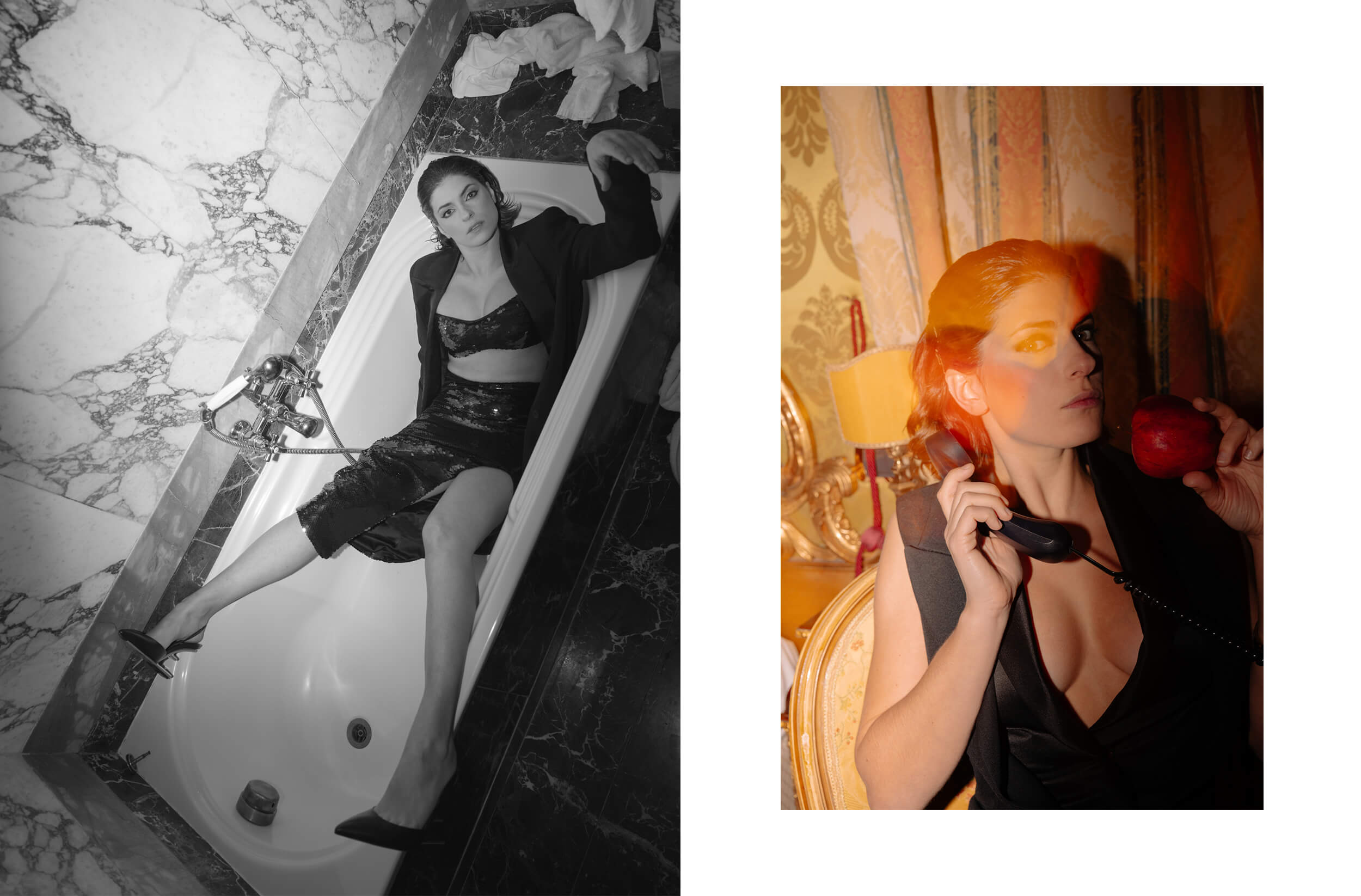Among the protagonists of the new film by Ficarra and Picone, “Santo Cielo”, set to be released on December 14th, Maria Chiara Giannetta is an actress who has traveled extensively through the emotions and challenges of dramatic art, from the TV show “Blanca” to the role of Sister Luisa in this new and brilliant comedy.
During our phone call, Maria Chiara shared her educational journey, emphasizing the importance of dedicating herself wholeheartedly to acting during and after her training at the Centro Sperimentale. A wise choice that allowed her to fully immerse herself in the world of cinema without distractions.
Regarding “Santo Cielo”, Maria Chiara loved portraying a multifaceted and observant character in a film that openly tackles contemporary themes, from pure and unconventional love to divorce and democracy. There’s no wiser choice, in fact, than conveying a message of pure love without judgment through art, in this case, with a film that makes you reflect without losing its comedic touch. A unique experience for Maria Chiara’s journey, and a significant step for Ficarra and Picone: a film destined to make people laugh and reflect, and an actress promising only great stories to tell.
Among cinema, activism and anecdotes, Maria Chiara told us about her past and her present, of which psychotherapy is an essential element for a life full of self-awareness, and for finding the necessary tools to act and react. And now let us tell you about her with our December Cover Story.
What’s your earliest cinema-related memory?
I think it’s some scenes from a Hitchcock film I saw as a child while my parents were watching it. I remember stolen glimpses because it was a movie I obviously couldn’t watch, like when I was older, and my mother and father were watching “The Ring” on Halloween night. I had to go to the bathroom, but to get there, I had to pass through the kitchen where they were, and I saw what I wasn’t supposed to see [laughs].
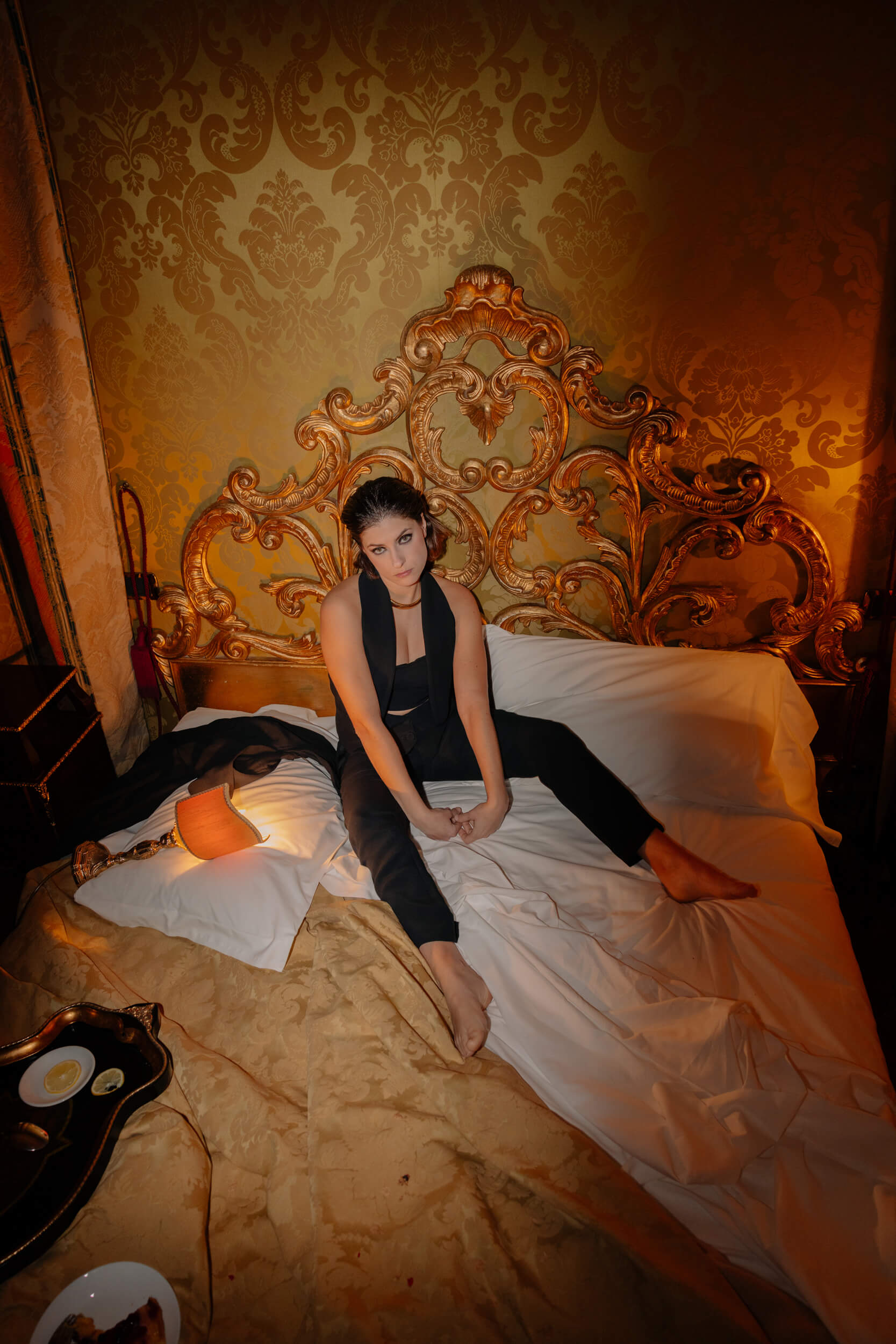
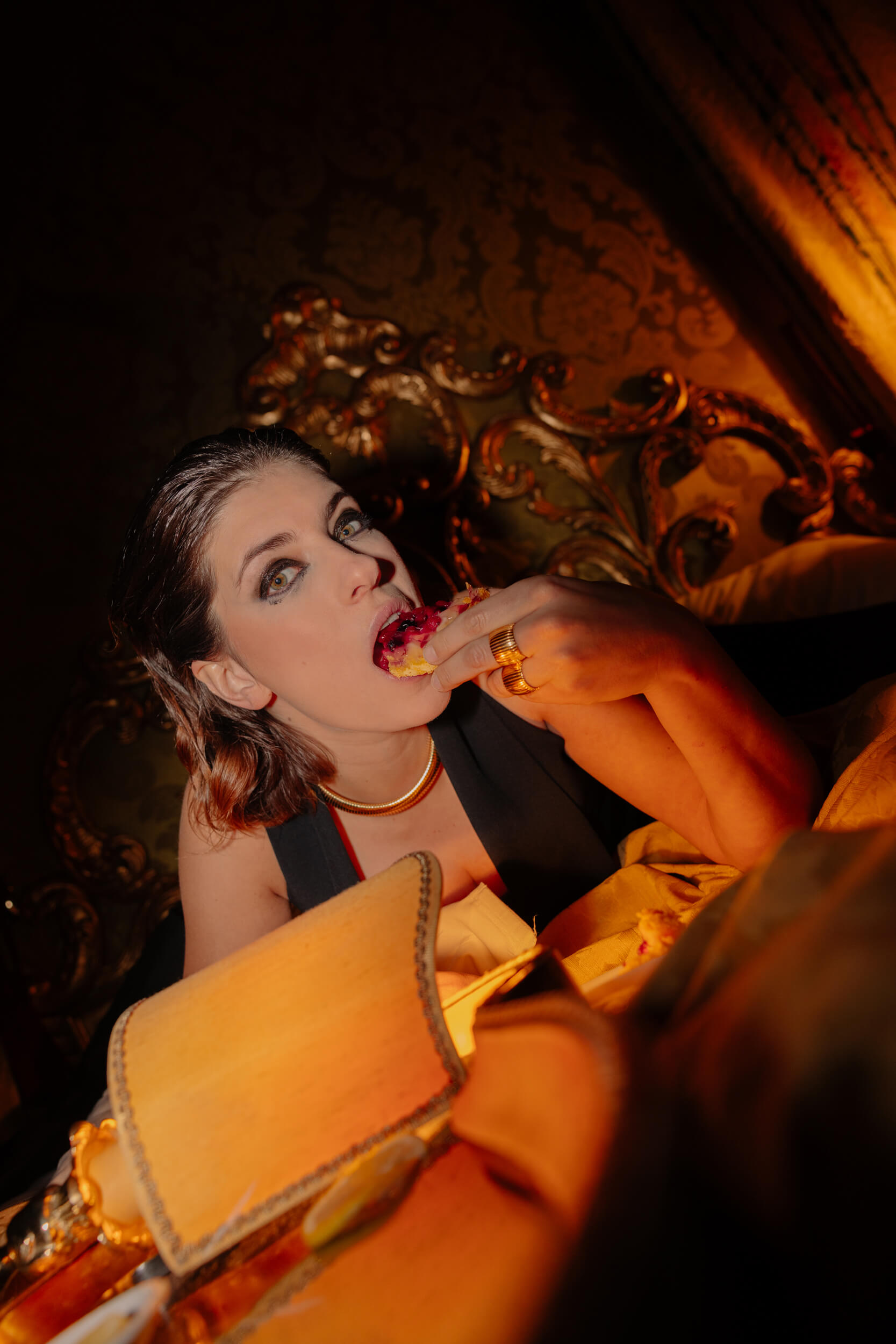
As a drama art enthusiast since childhood, how did you handle the transition from student at the Centro Sperimentale di Cinematografia to a professional actress? What were the most significant challenges you faced along the way?
Paying rent [laughs] and staying in Rome, trying to juggle various jobs while, at the same time, attempting to do my job. I went to countless auditions, and each one that didn’t work out felt like a blow to the head. At the time, it was hard for me to accept that I did well but there was someone more suitable for the role. Now that I’m “in” the profession, fortunately, I understand it much better. You also realize there are some luck elements; you have to calculate that, like when an actress turns down a role, and then it’s yours.
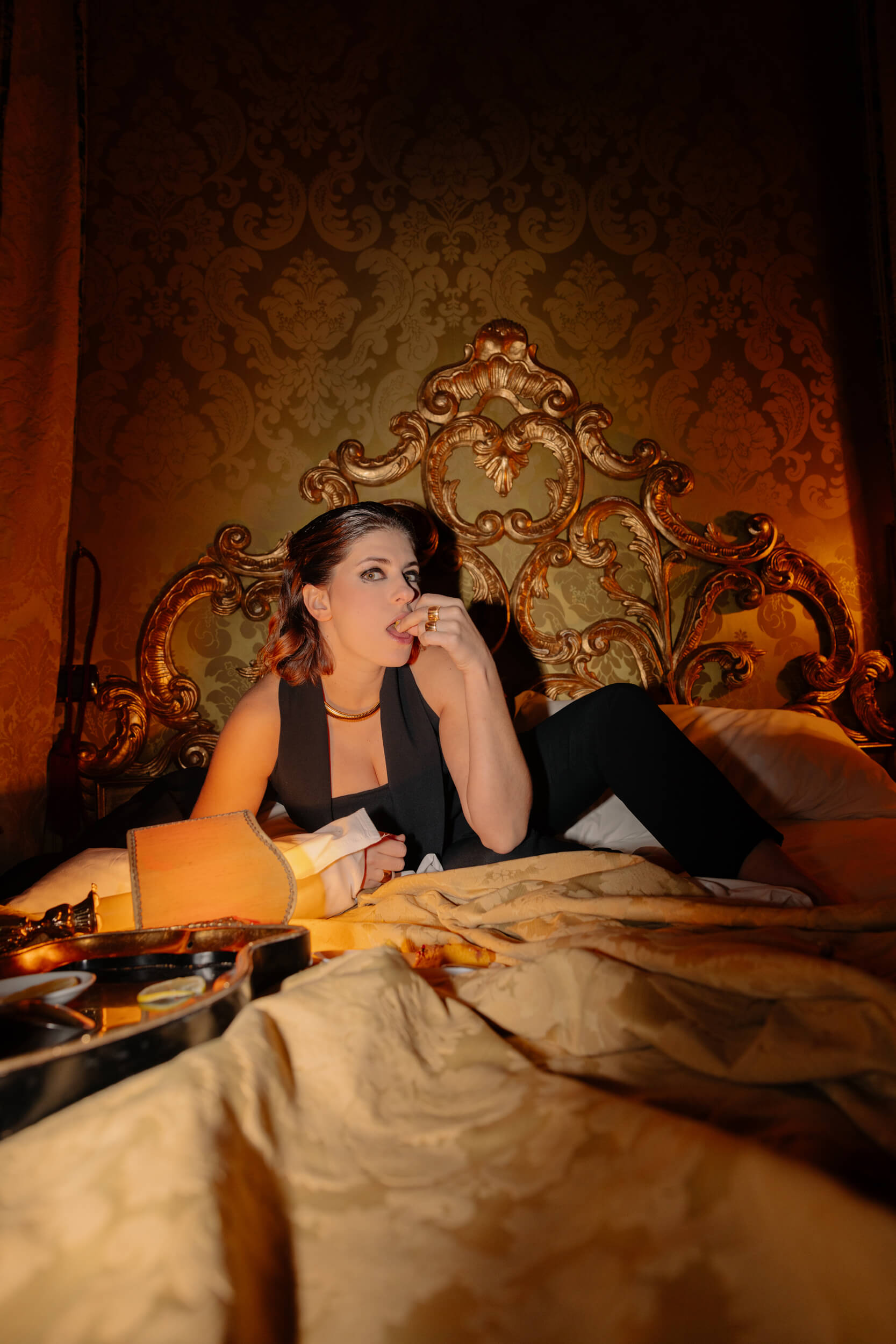
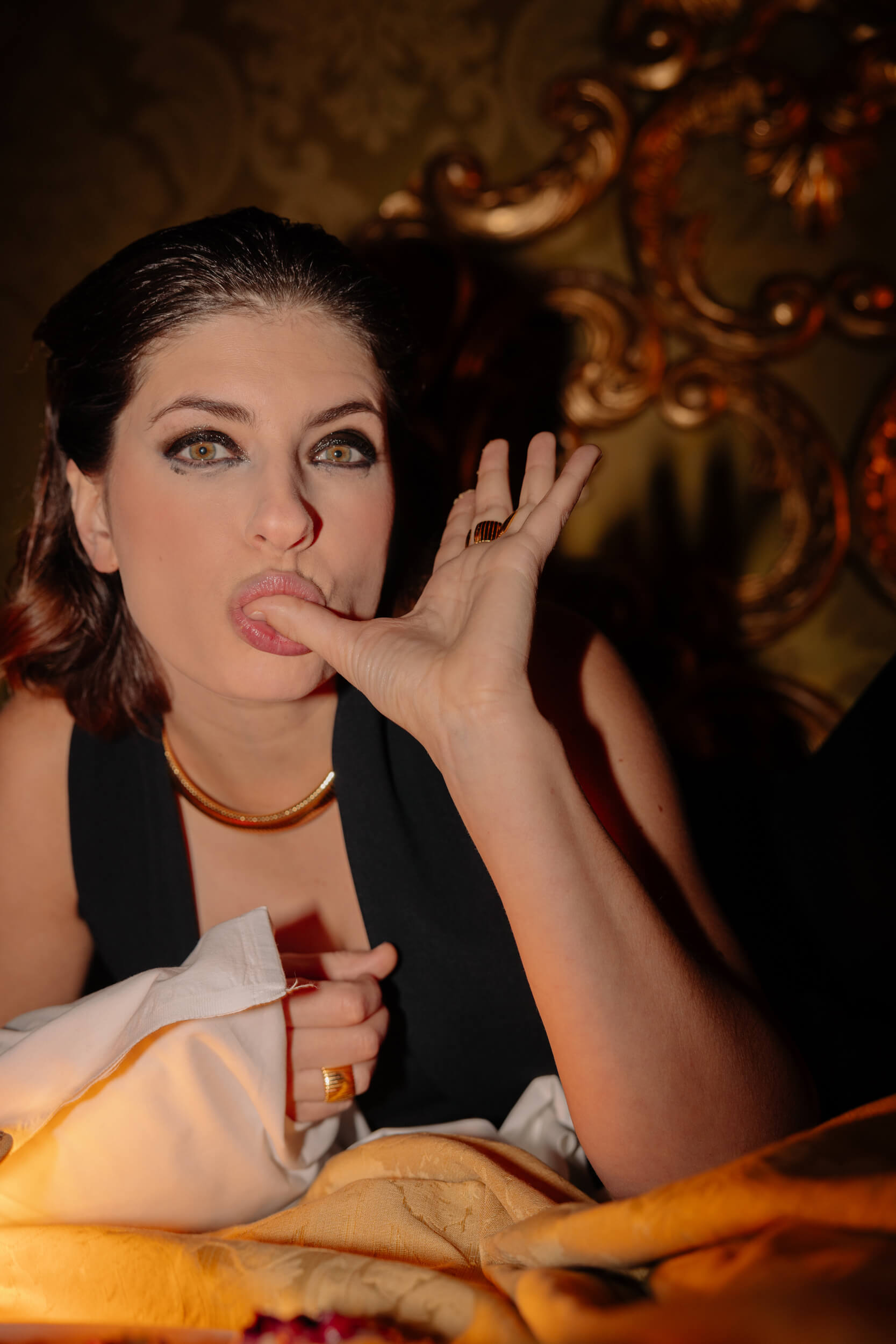
And that also helps because maybe it’s the key you need for something else that comes later! Yet, anyway, you started with Modern Literature at university…
Yes, I studied Modern Literature for two years when I wasn’t ready to leave my city and go to a professional academy, more on a human level than in terms of preparation. So, for two beautiful years, I experienced university life until at some point, I said to myself, “But I have to try, I can’t live with this doubt”. So, when I entered the Centro Sperimentale, I gave up my studies and dedicated myself 100% to acting. There were colleagues at the Centro who also graduated from university, doing both things, and I don’t know how they managed because the Centro Sperimentale takes three years, from 9 in the morning to 6 in the afternoon.
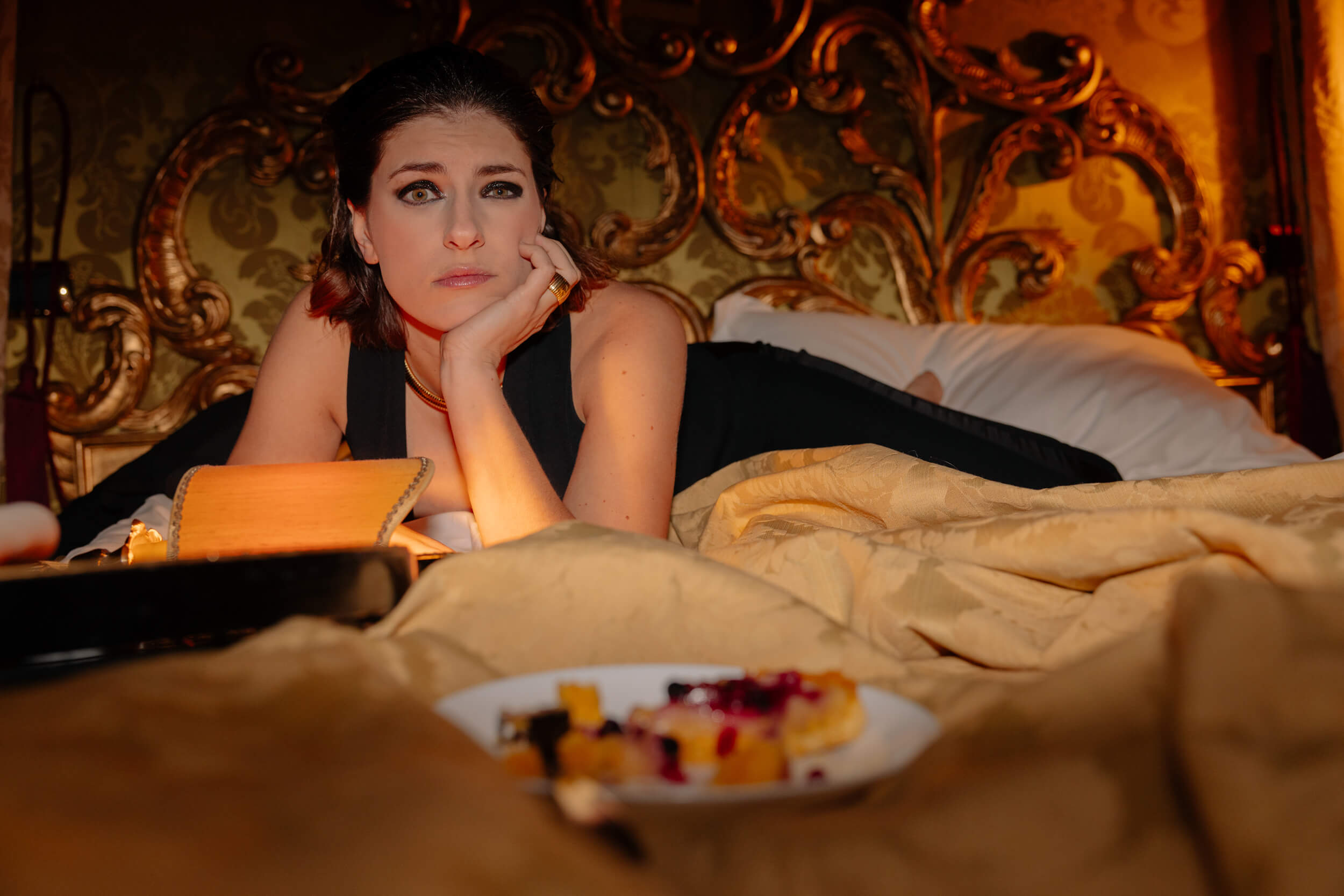
And, in my opinion, it was the wisest choice because, as much as you can be multitasking, I think if you do too many things simultaneously, you give each only a minimal percentage of yourself.
Yes, I agree. I wanted to give myself entirely to that thing, truly focus on what I was doing, and the gaps I might have had in cinema, theater, and culture in general, I studied on my own. Theoretical aspects, in short, I tried to compensate with the extra time I had.
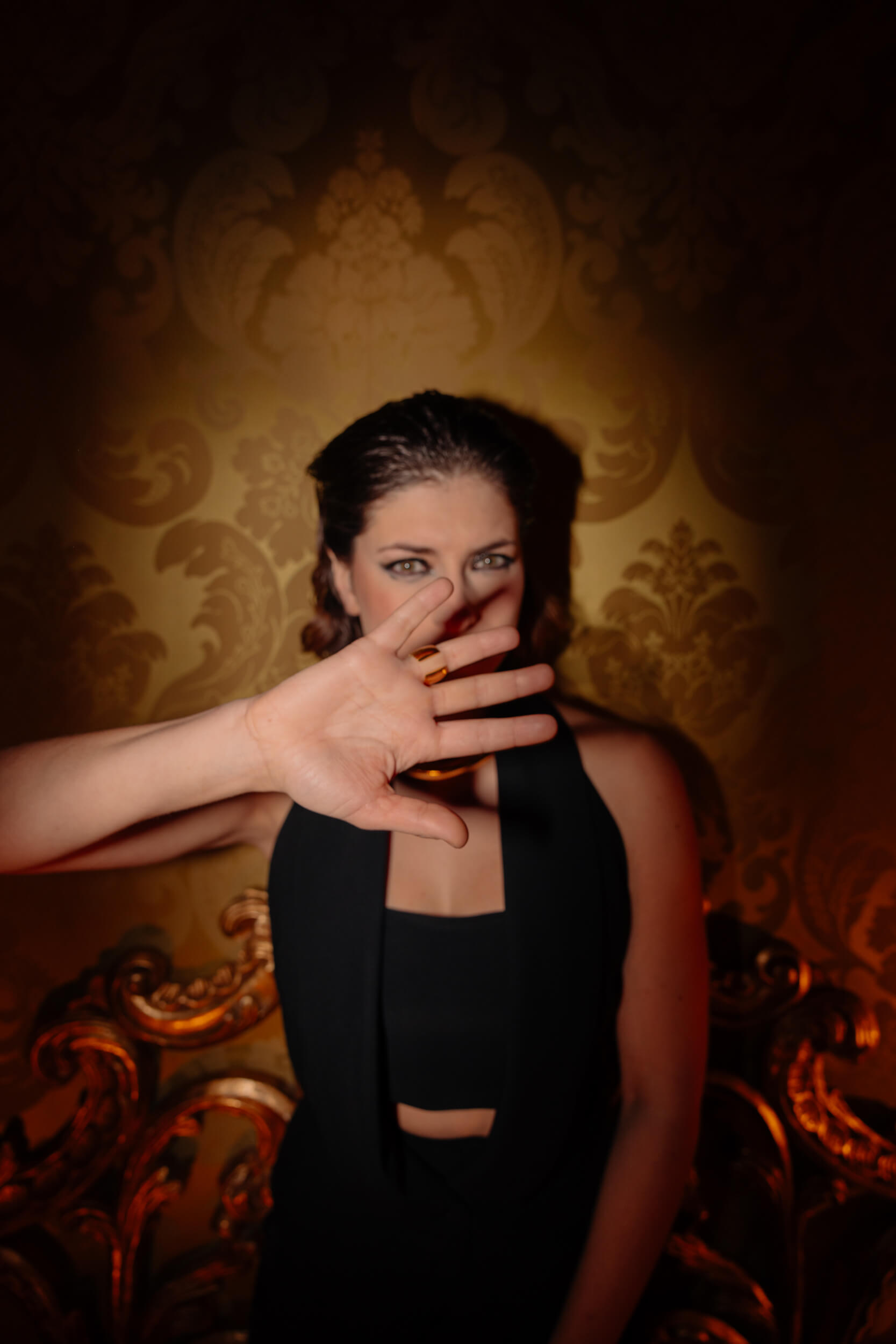
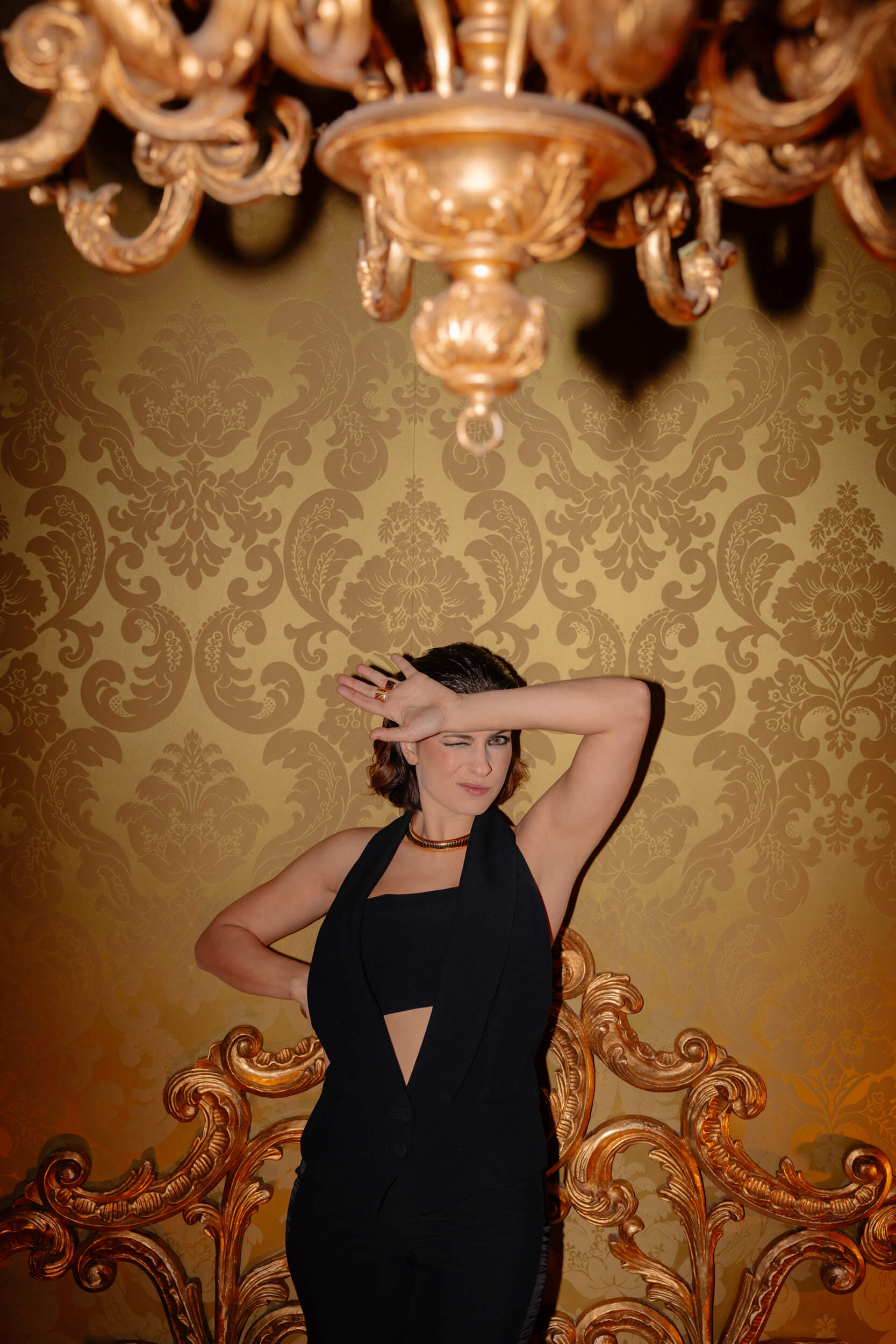
Speaking of your role as Sister Luisa in the film “Santo Cielo”, what was your reaction when you read the script for the first time? Was there a scene or a moment that particularly struck you?
When I read the script for this madness, I noticed that my character doesn’t have a very prominent role in the plot. It’s multifaceted, experiencing an existential crisis that eventually puts her at the center of attention. I fell in love with the character precisely because she’s not an insistent presence: Sister Luisa is an observer who doesn’t speak much until she makes an irreversible decision and becomes the one holding the biggest secret.
Then, it’s worth noting that I play a nun but I’m not religious, so I approached a role like this with a lot of curiosity and tact, trying to portray a person with deep-rooted faith who begins to question it. Plus, there’s an important thing this film does: avoid pigeonholing love. Love is love, period, no matter how unconventional a family may be, like in the film.
Moreover, even though it doesn’t concern my character, this film openly addresses the theme of divorce, and that’s another reason why I’m thrilled to be part of it. The film shows that you shouldn’t feel guilty if you no longer love someone but still want to be by their side. In short, this film talks about pure love without the need to dictate what is right and what is not, what you should and shouldn’t do, which is the biggest message Ficarra and Picone could send in this historical moment.
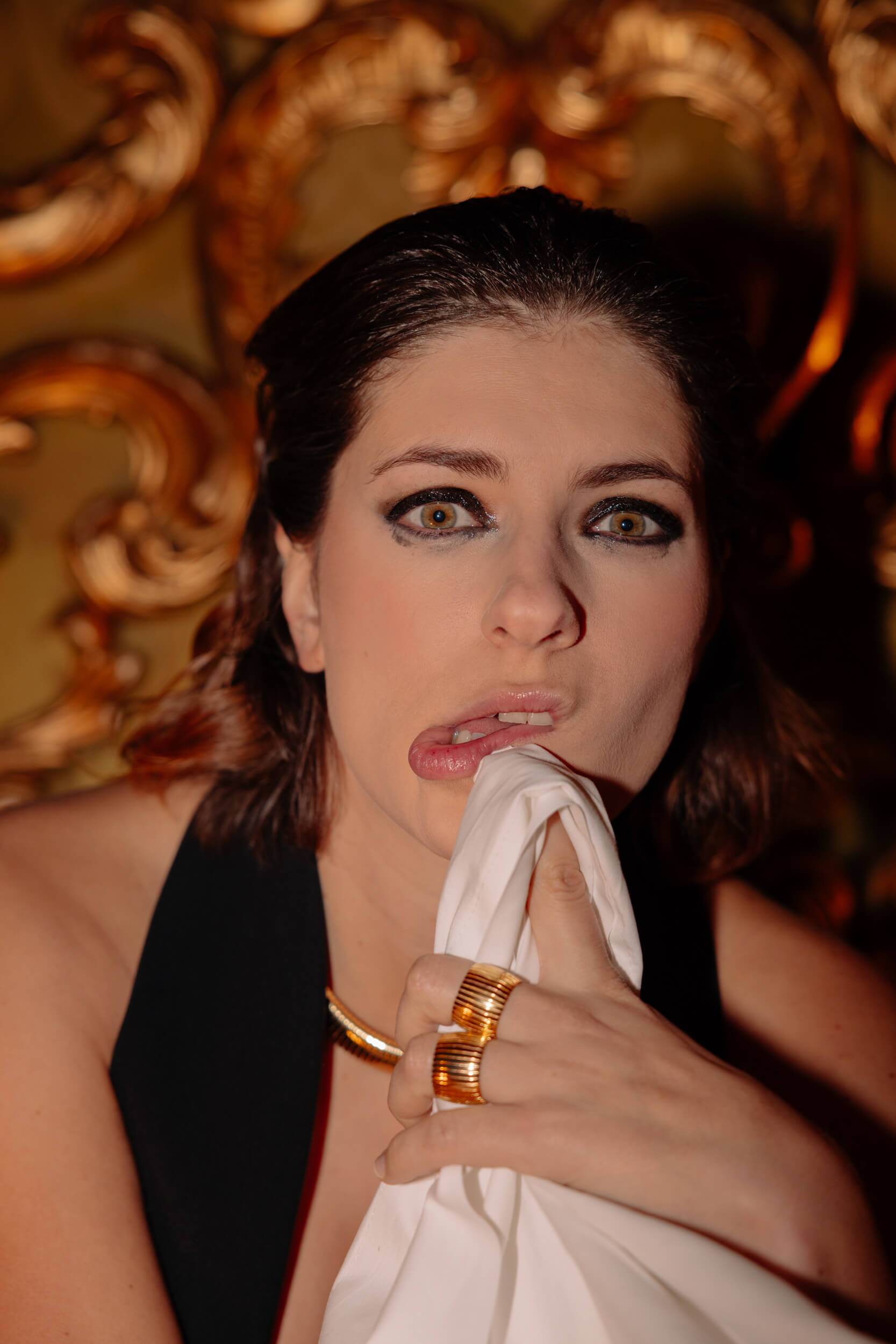
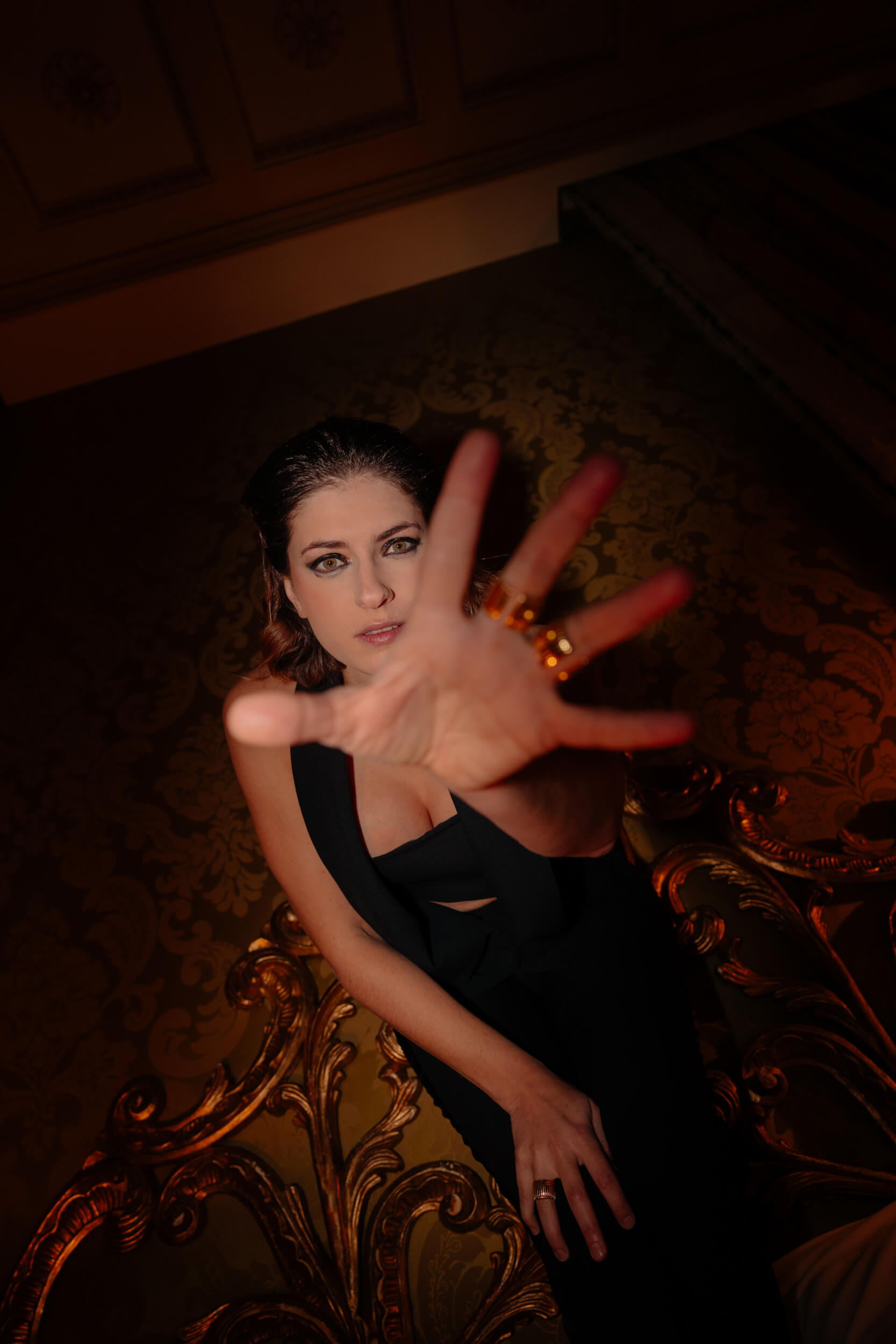
“This film talks about pure love without the need to dictate what is right and what is not, what you should and shouldn’t do”
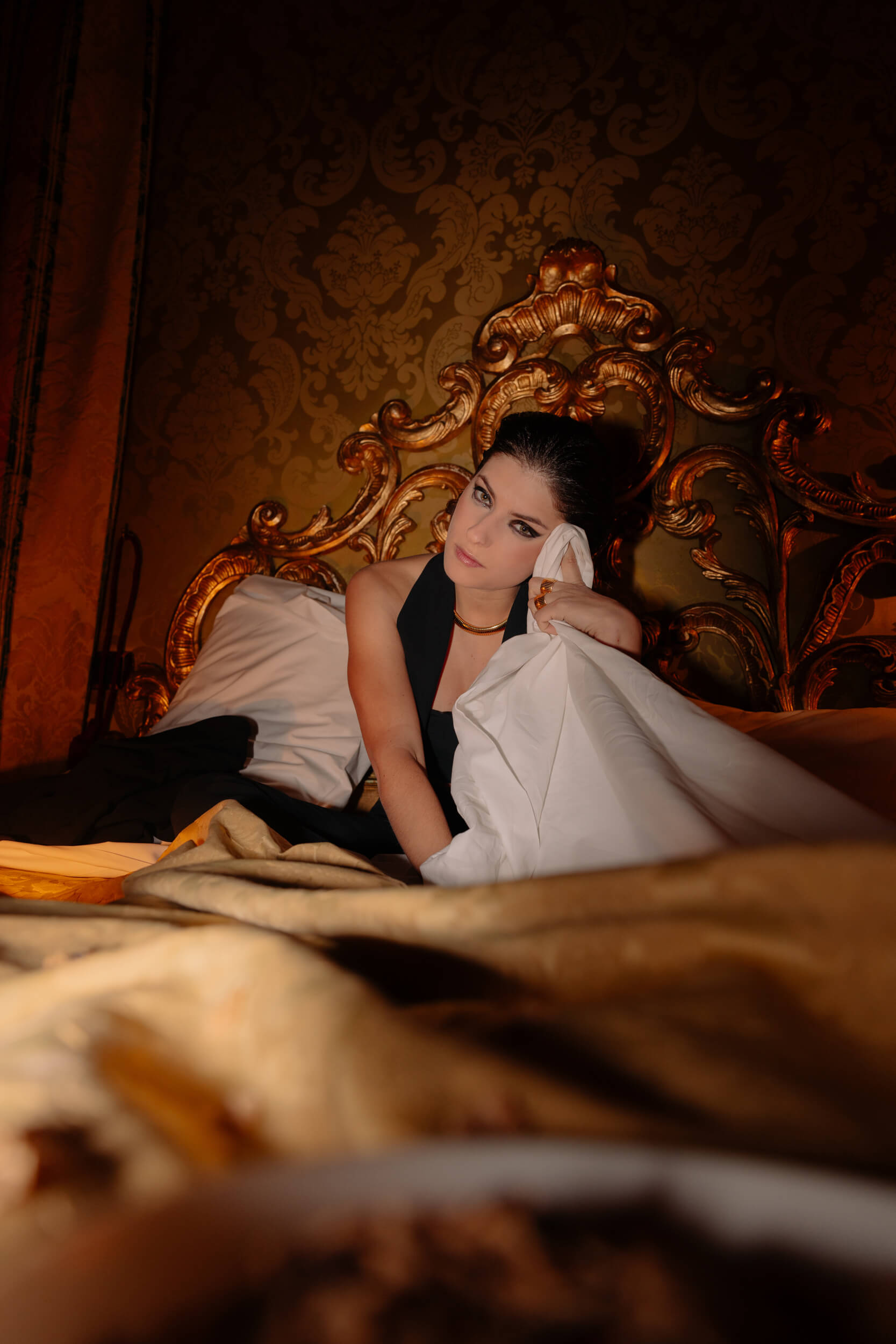
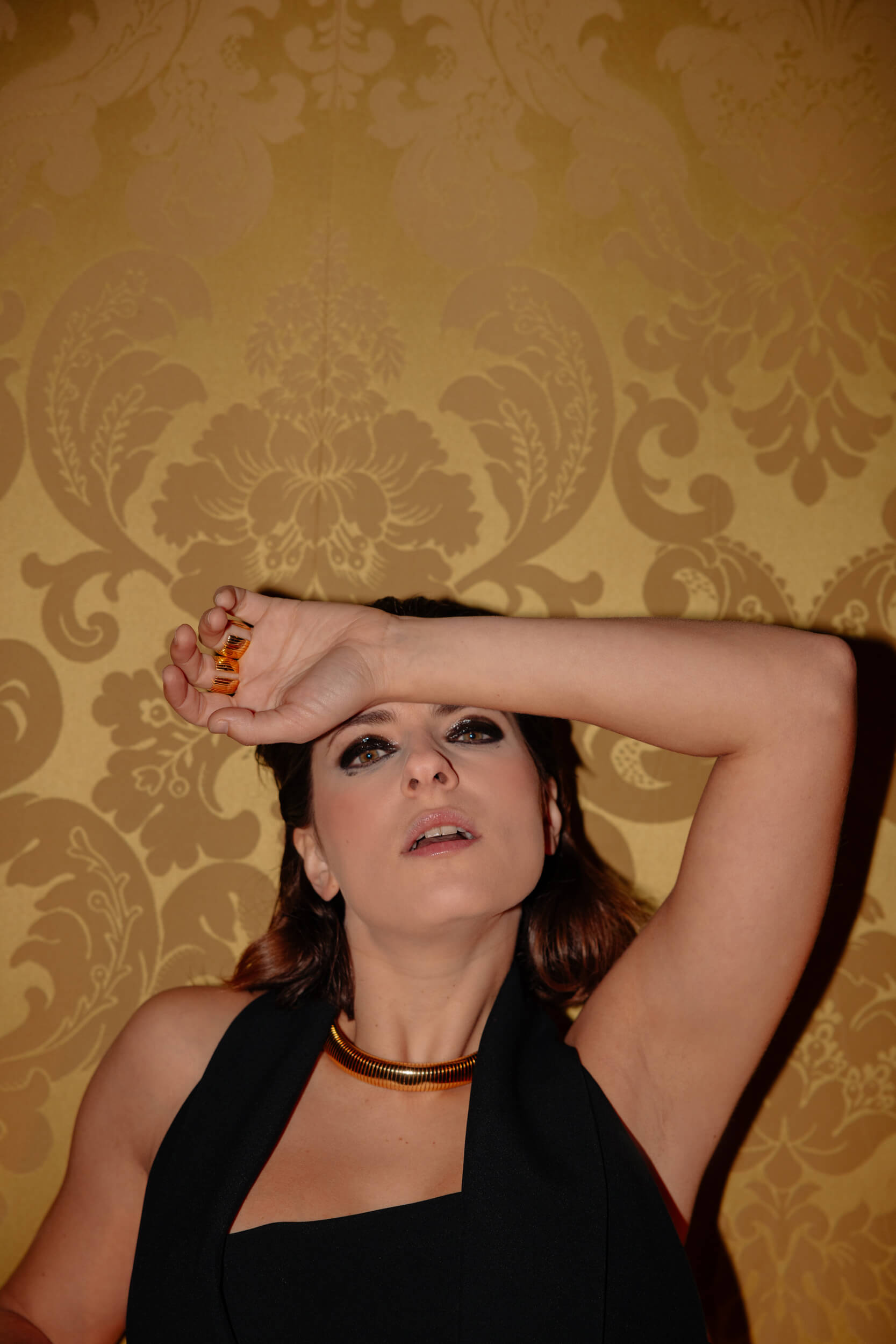
When they say “it makes you laugh, but it also makes you reflect”…
True, I think that’s the most important goal of the film. Yesterday I read an article by Boris Sollazzo on the Hollywood Reporter that said, “After Barbienheimer, there’s ‘Santo Cielo’, which comes from the ‘C’è ancora domani’ vein of Cortellesi”. And it’s true, if you think about it because it’s a film where you laugh a bit less than in other films by Ficarra and Picone; it’s heartfelt, and for me, it’s a transition they had to make.
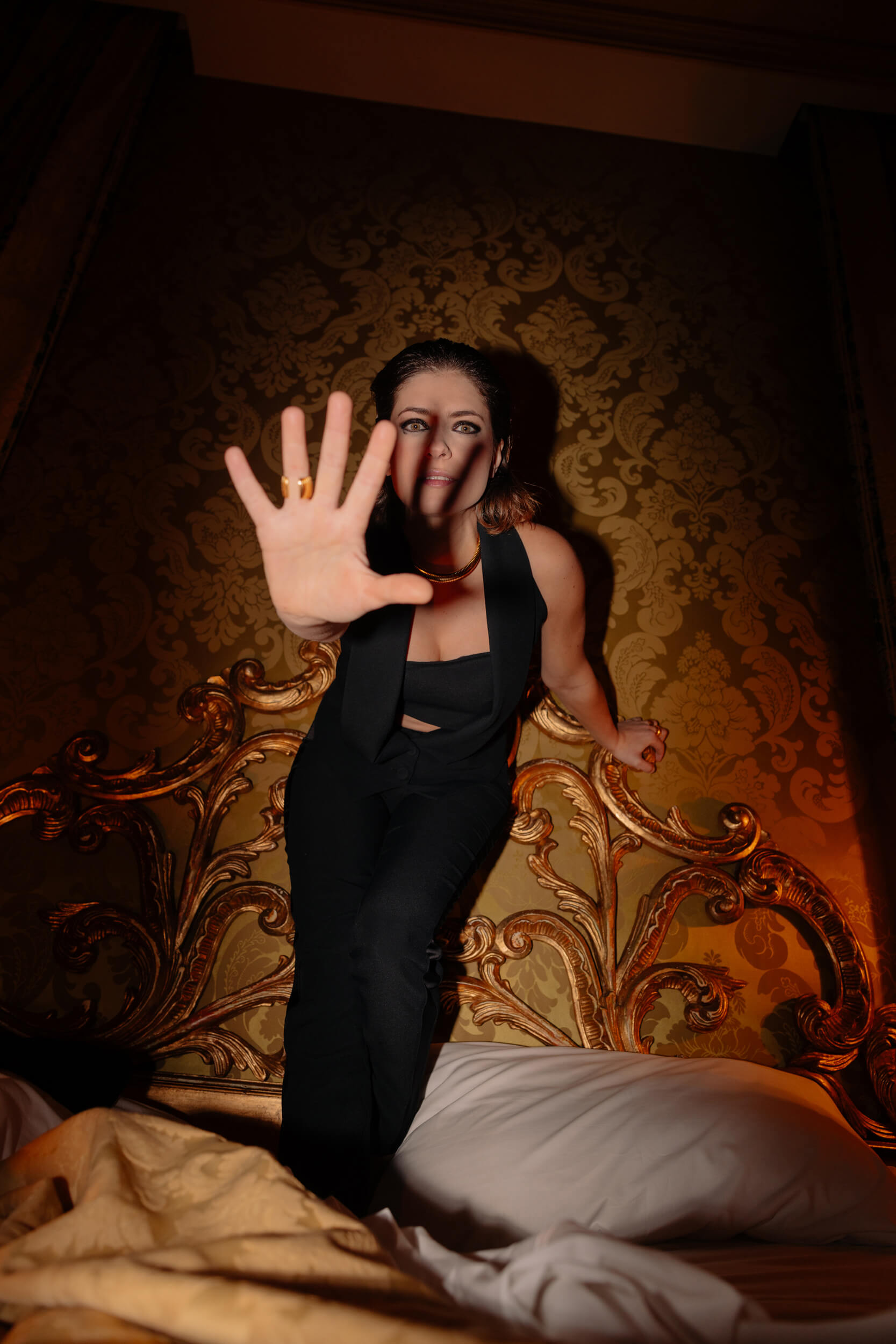
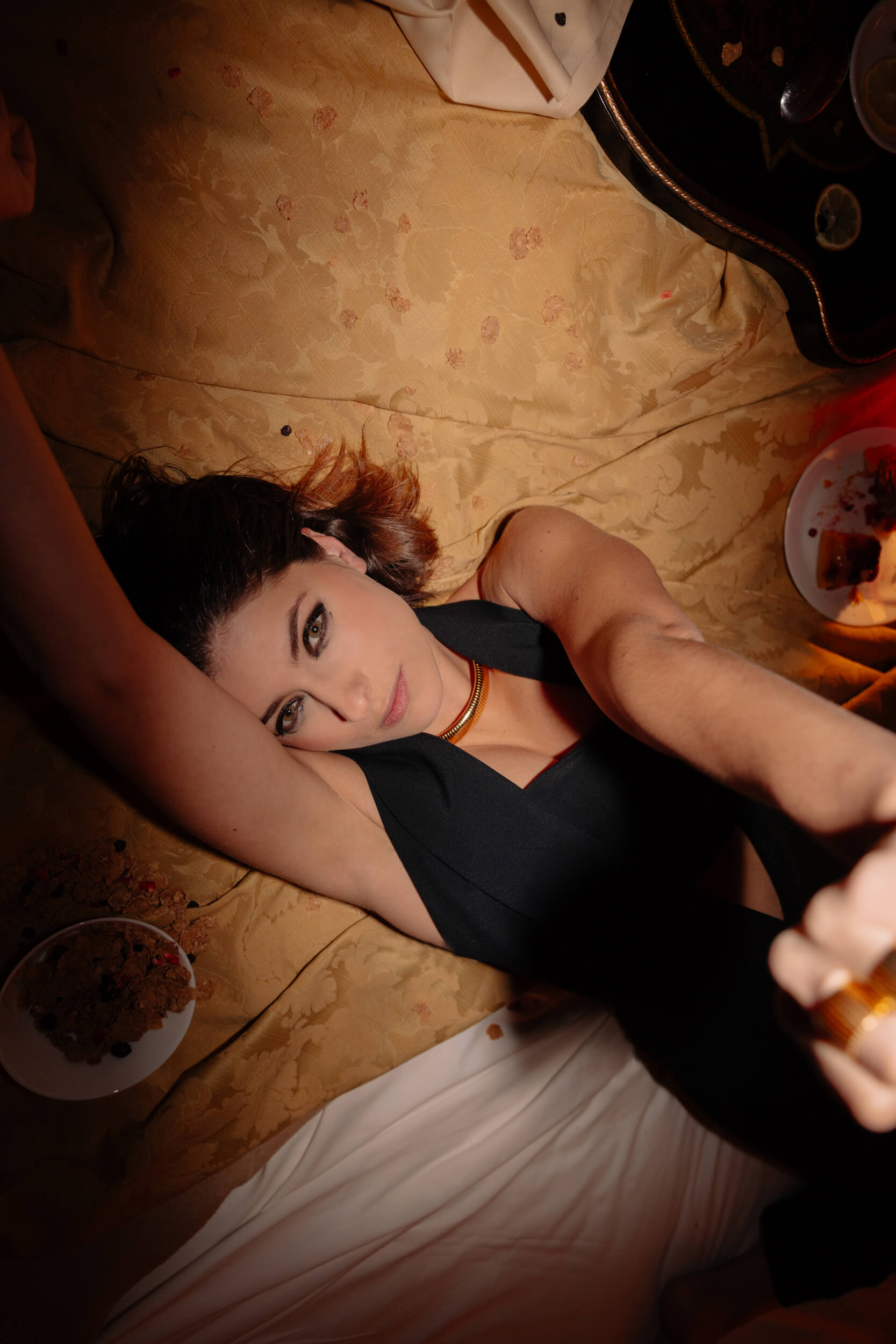
Being part of an ensemble cast is definitely a unique experience. How did you find your place, your artistic balance within the group of actors, and what lessons did you learn from interacting with them on set?
First of all, I believe you always have to approach it knowing where you stand. The cast included me, Barbara Ronchi, Ficarra and Picone, and I was the youngest girl and actress, thrilled by the presence of Barbara Ronchi with whom I’d always wanted to work, as well as with the actress Vanessa Scalera, whom I always wanted to work with [laughs]. So, I approached it with a lot of listening, but I took my space when it was my moment because I had people around me who allowed it. I worked a lot more with Valentino [Picone], who let me improvise a lot, like the scene where they dance and blend passion and gift, totally improvised.
In short, I listened a lot and approached the work with great respect for the profession and the experience of others, especially because when it comes to comedians, you have to be a bit careful. They don’t speak the normal acting language; every comedian speaks their own language.
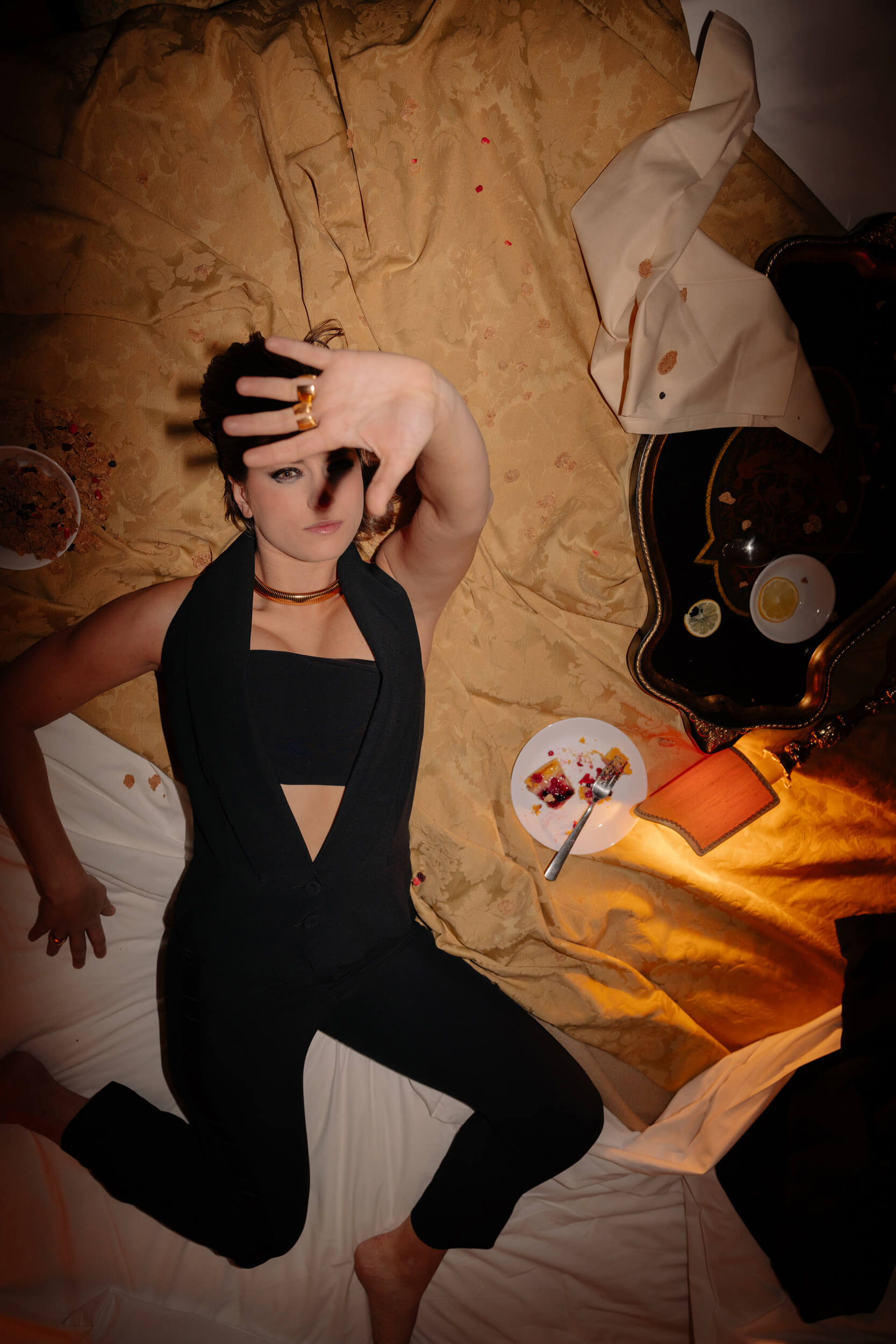
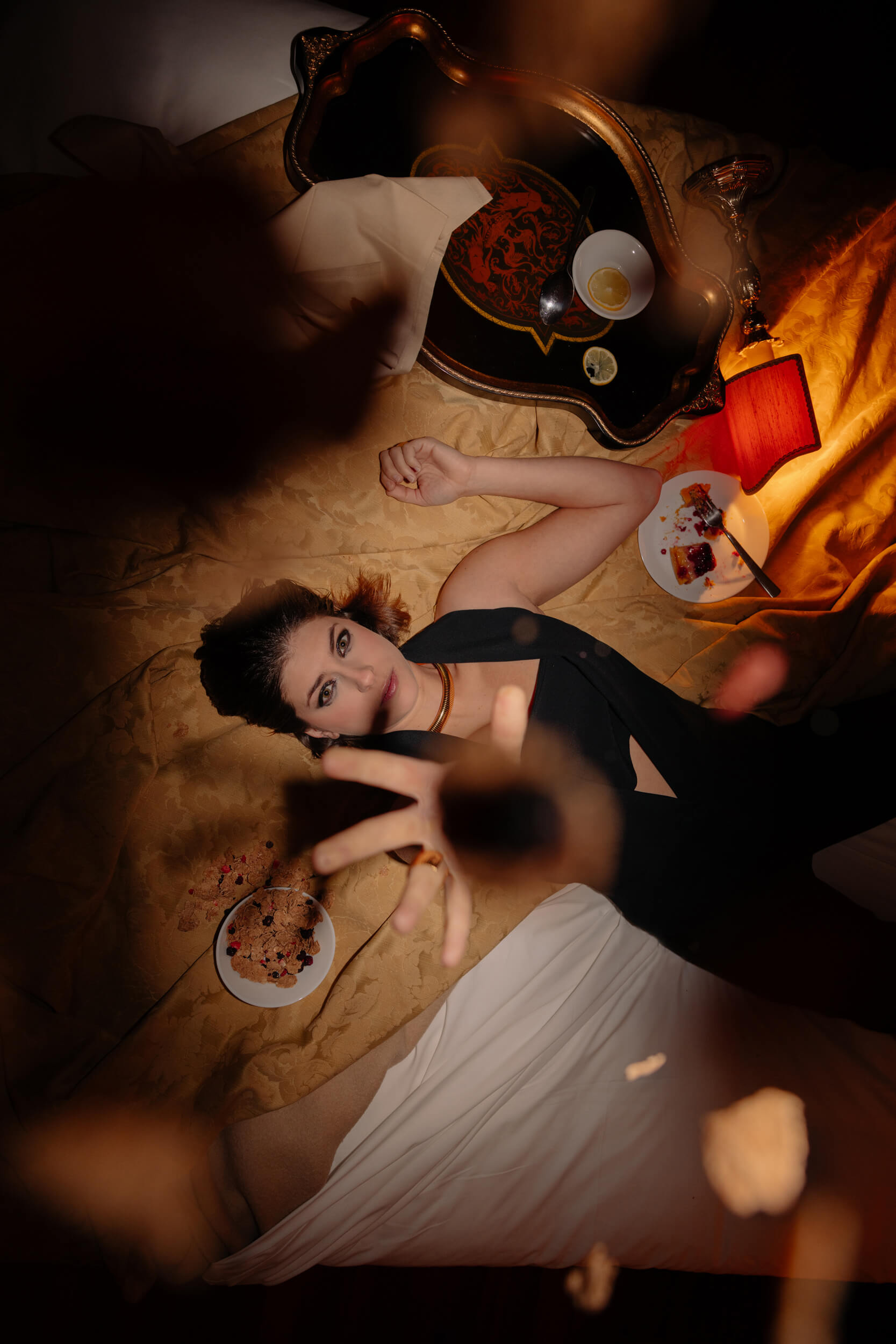
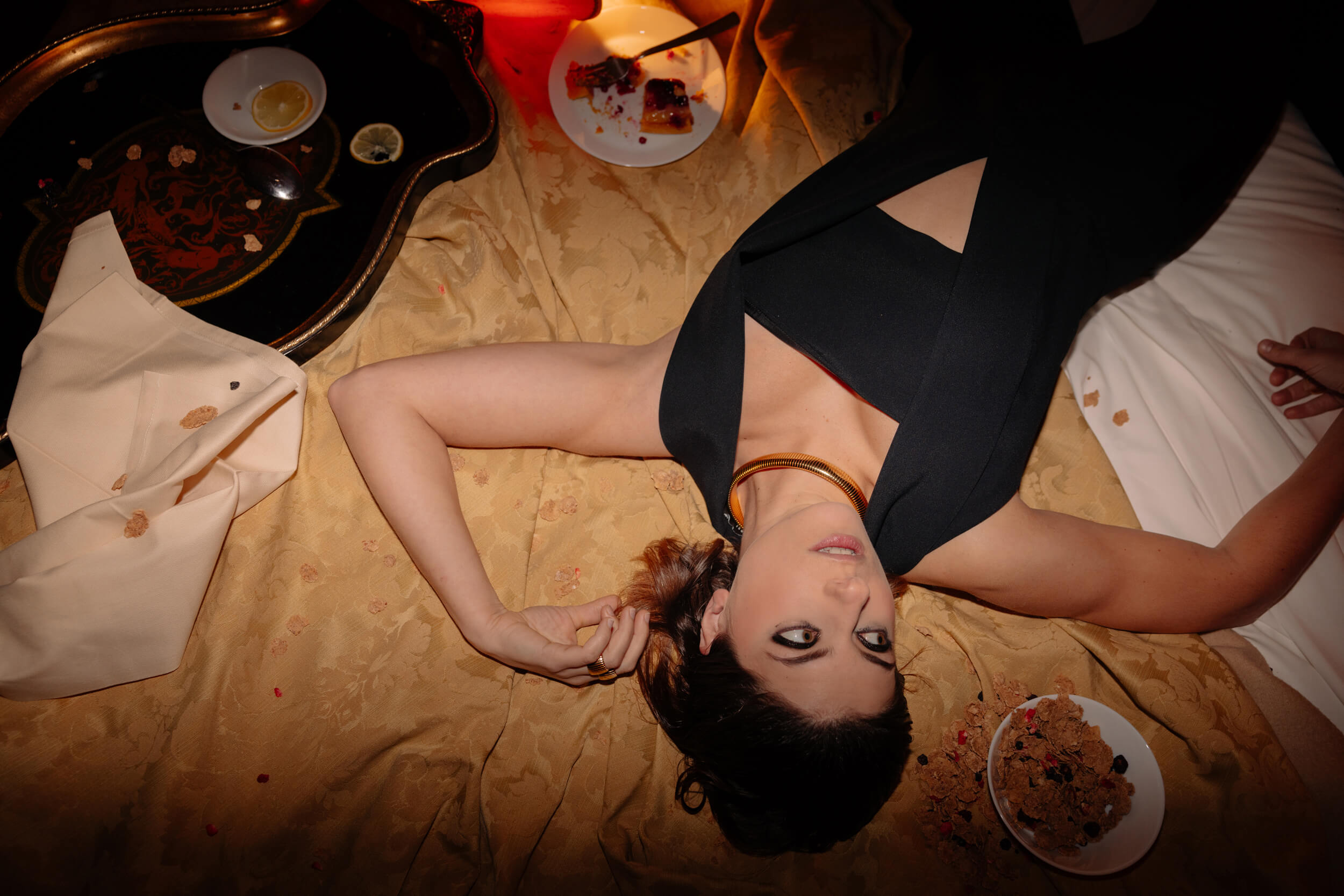
Everyone has their own sensitivity and humor.
Yes, and everyone has their own rhythm and timing, and you have to get into it. Fortunately, I come from the school of Nino Frassica, so I am very advantaged in this regard. Nino taught me a lot, as did Maurizio Lastrico.
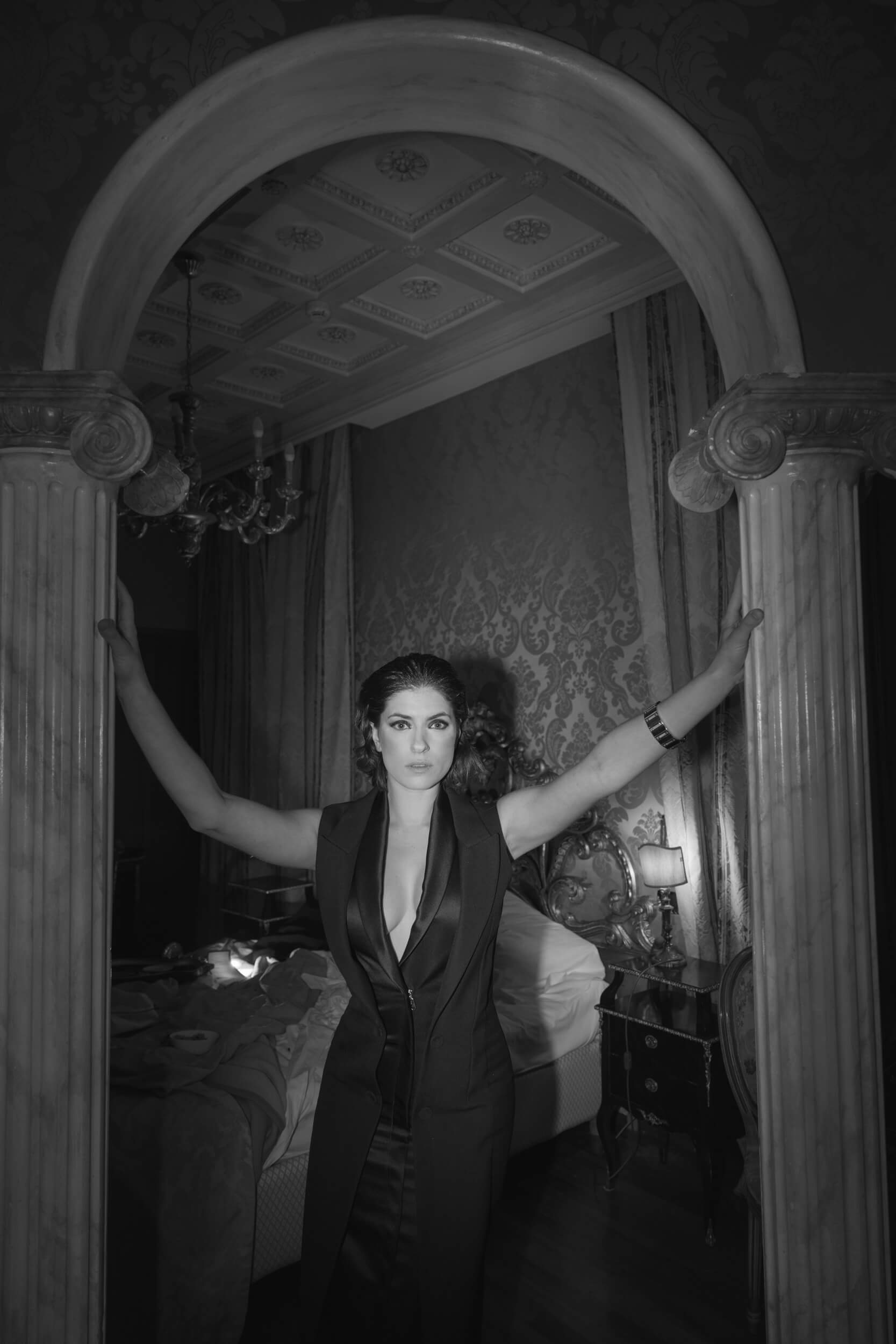
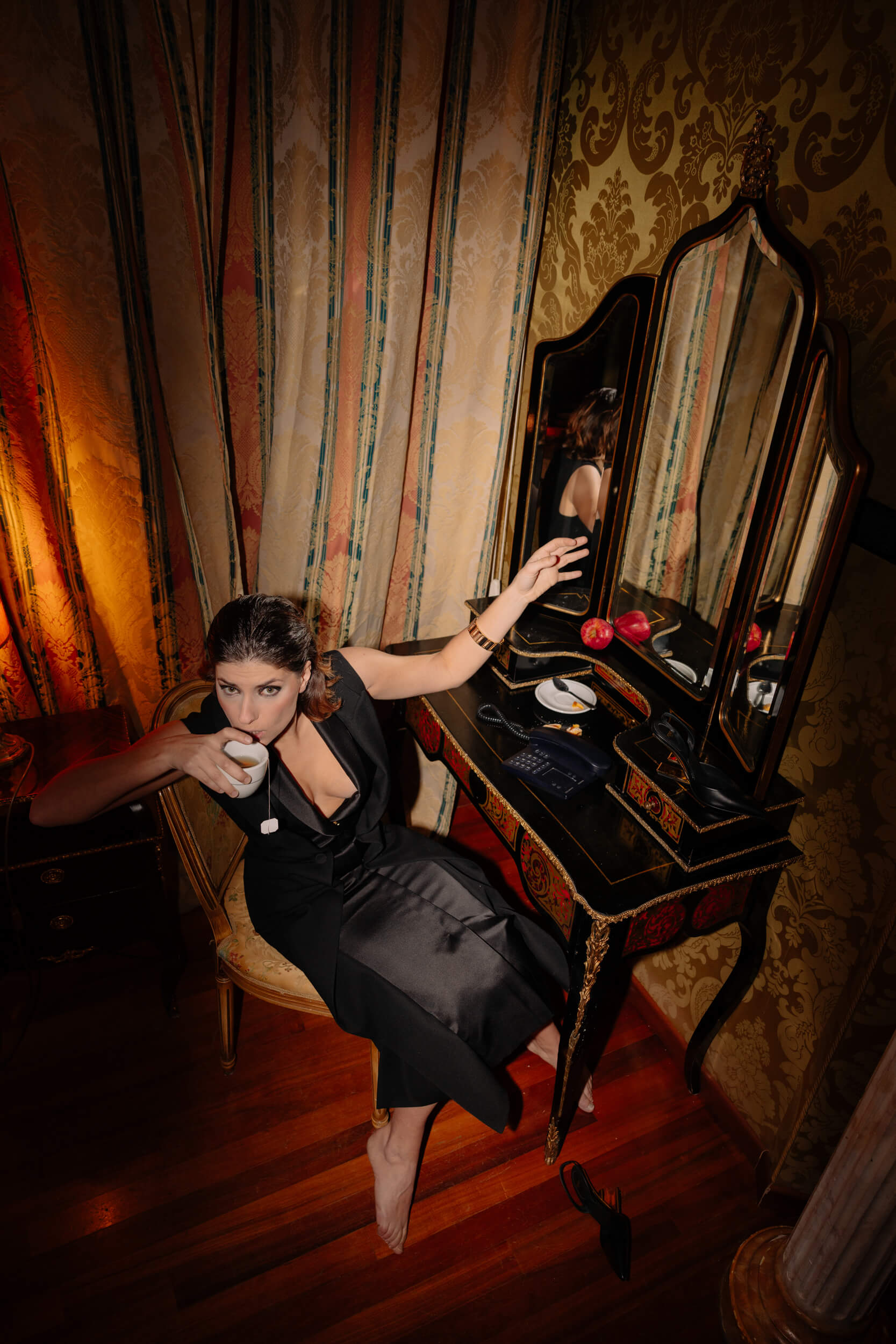
The plot of “Santo Cielo” mixes comedy and fantasy elements. How did you manage the tone of the film and work to balance the comedic side with the deeper themes of the story (faith, patriarchy, democracy)?
I must say that I can’t wait to challenge myself again with this genre to try to understand better how I work. Maurizio Lastrico, by the way, pointed out that my strenght is concreteness, which I think is one of the things that characterizes my acting in general. Concreteness in the sense of “sticking to the things you do,” commonly called “realism”. So, in the comedic scenes, I tried to stay in the concreteness of this pure character, with pure faith, to whom something happens that, in her total naivety of faith, should create the same comic situation. In short, when Sister Luisa sees Aristide for the first time while fixing the television, she is dazzled, open-mouthed, and then it turns out he can sing too… He would be the perfect man if only she weren’t a nun! [laughs]
Then, concreteness helps even more with emotion when the final part comes, which is the most moving.
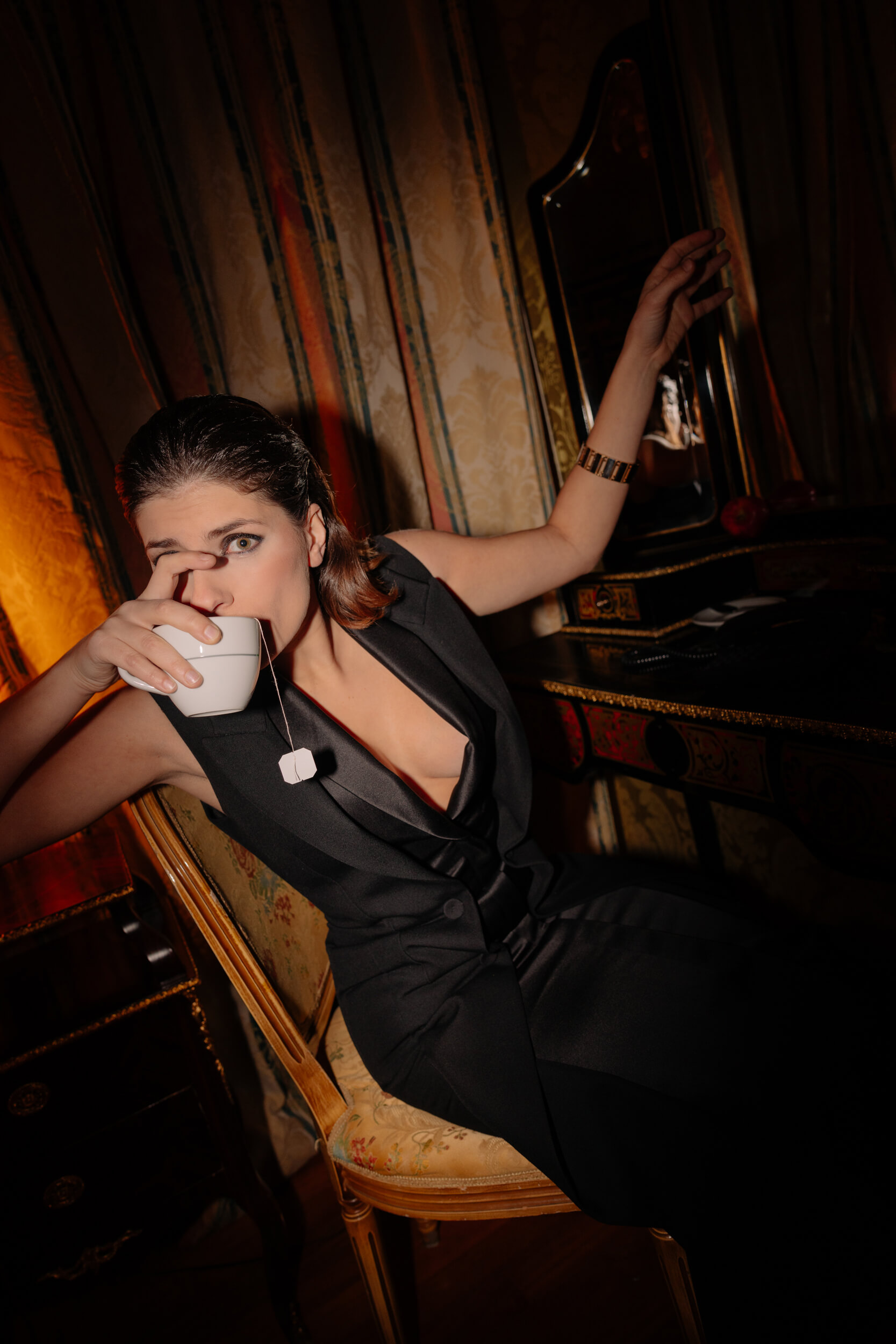
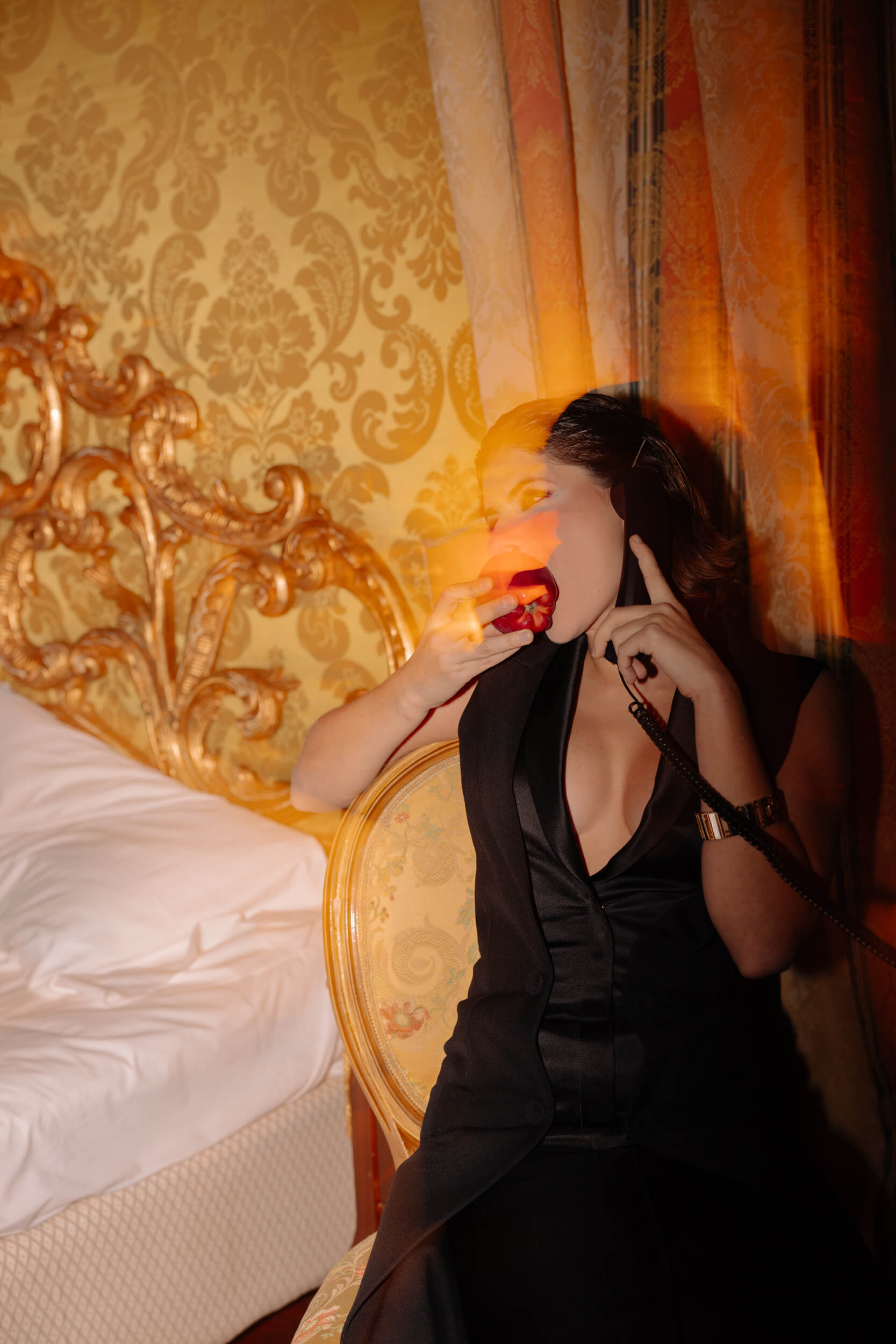
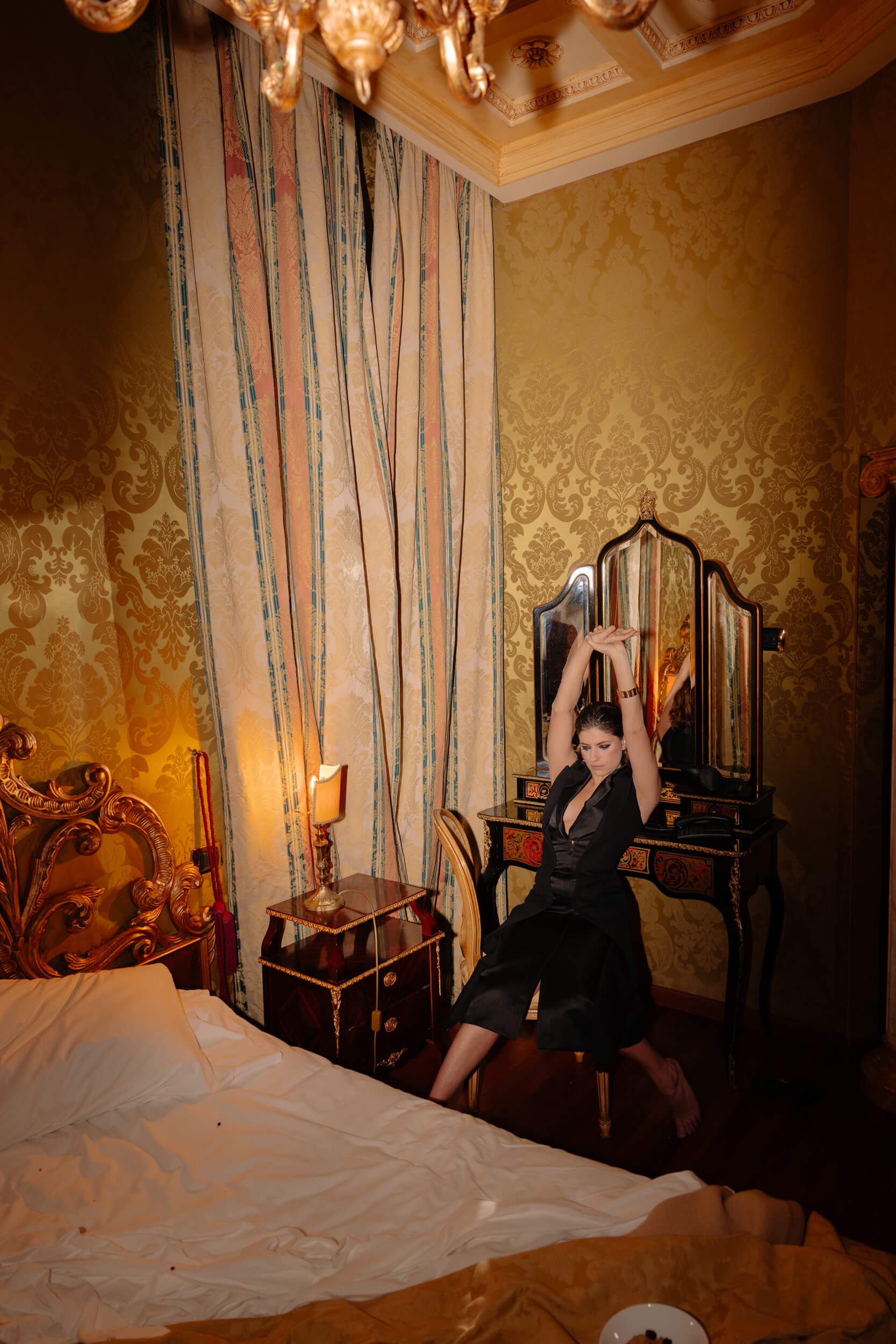
“My strenght is concreteness“
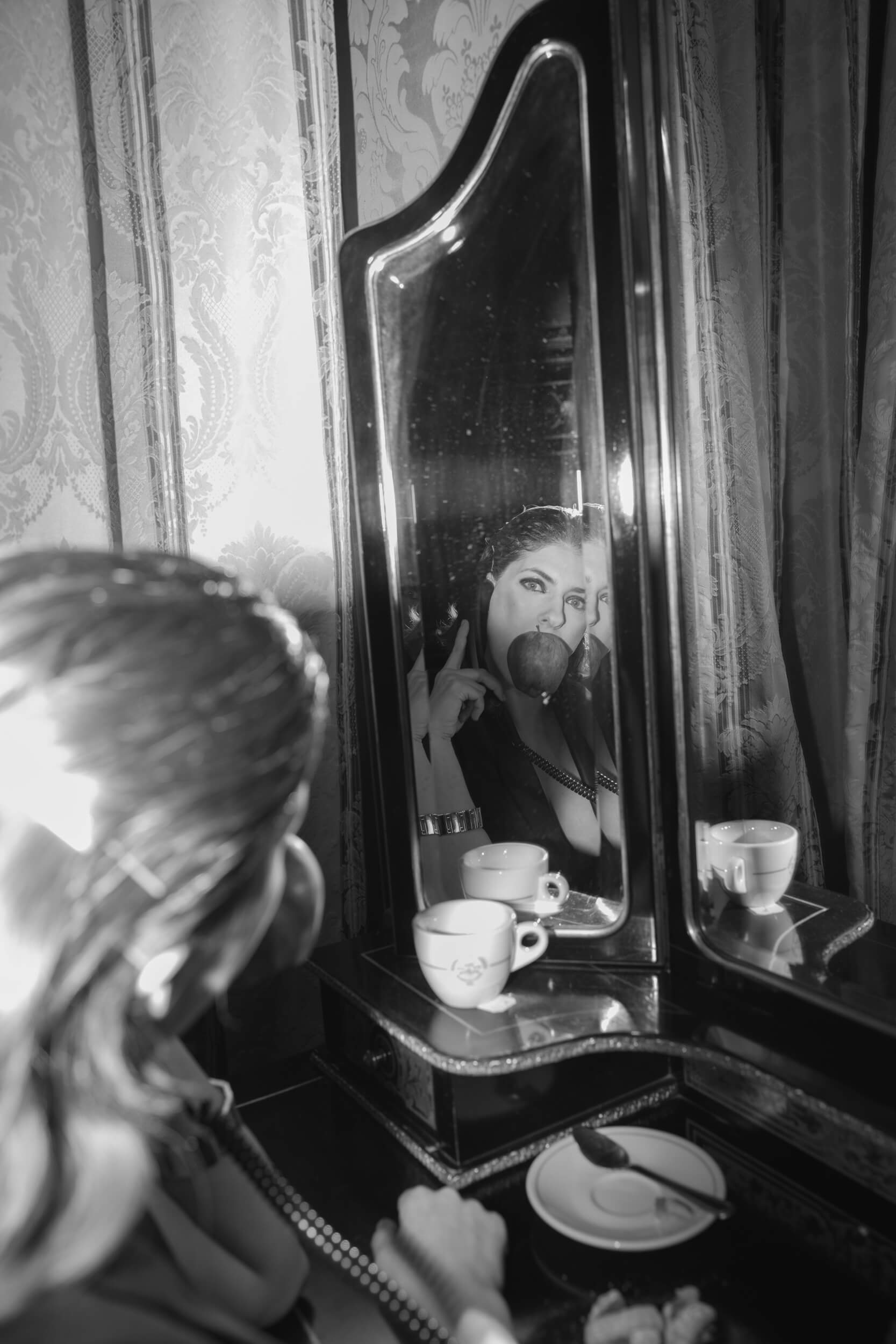
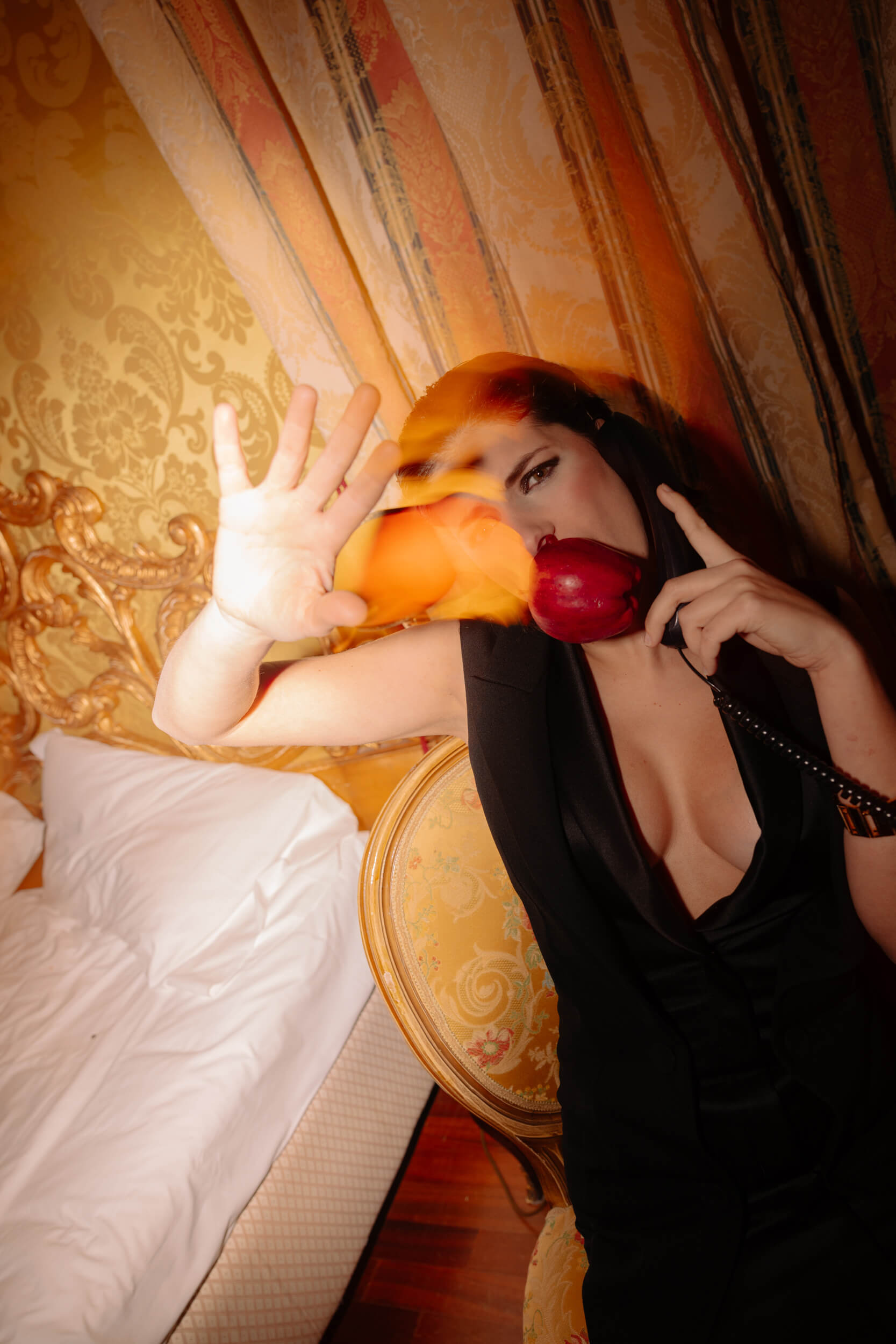
You are very wise, so I ask you: any advice for young people dreaming of a career in the dramatic arts, based on your personal experience?
I am an actress not carrying methods but culture. So, I strongly recommend reading a lot, writing, even just to keep what you’ve written in a drawer, watch things that excite you, and become culturally enriched. I always say that we actors are charlatans because we can do everything and badly; the important thing is to have a general knowledge of everything, perhaps delving into what inspires us the most! For example, now, whenever I find time, I want to become a sommelier and enroll in Gastronomic Sciences at university. For me, in life, there are food, wine, and acting!
On a personal level, I also recommend therapy. I’ve been doing it for two and a half years, and it helped me take an extra step in terms of personal growth. Therapy, preferably Jungian, is beautiful because it’s an hour you dedicate to yourself, with true honesty, with someone who has the right tools to teach you to ask yourself questions and get to know yourself better. So, I recommend therapy and culture, openness to all arts, which give us freedom.
I recently joined the Uno, Nessuno, Centomila foundation, and it was a truly exciting experience. I have never been very active in associations, but I felt that I had to take responsibility for speaking. It was nice because I felt an active part of something, and what should be done, in my opinion, or what I feel I can do more, is preventive work, emotional education for children, which is a tool for freedom. If you make it clear to children, both boys and girls, that they are free to at least imagine doing what they want, you also teach them what violence is because some don’t recognize it, can’t distinguish it from something else unless they know what that something else is.
I firmly believe that arts and culture can make us free, so knowledge.
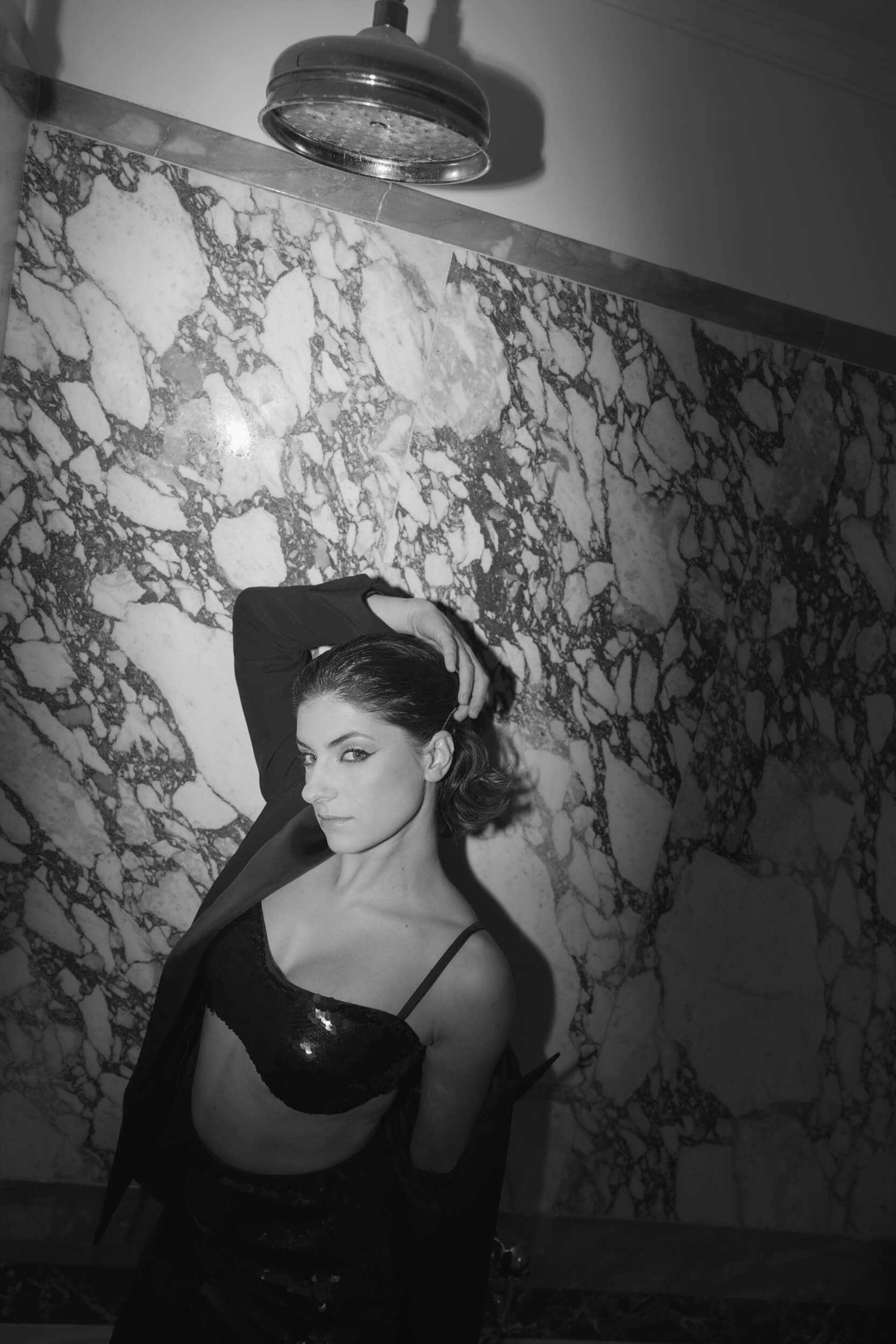
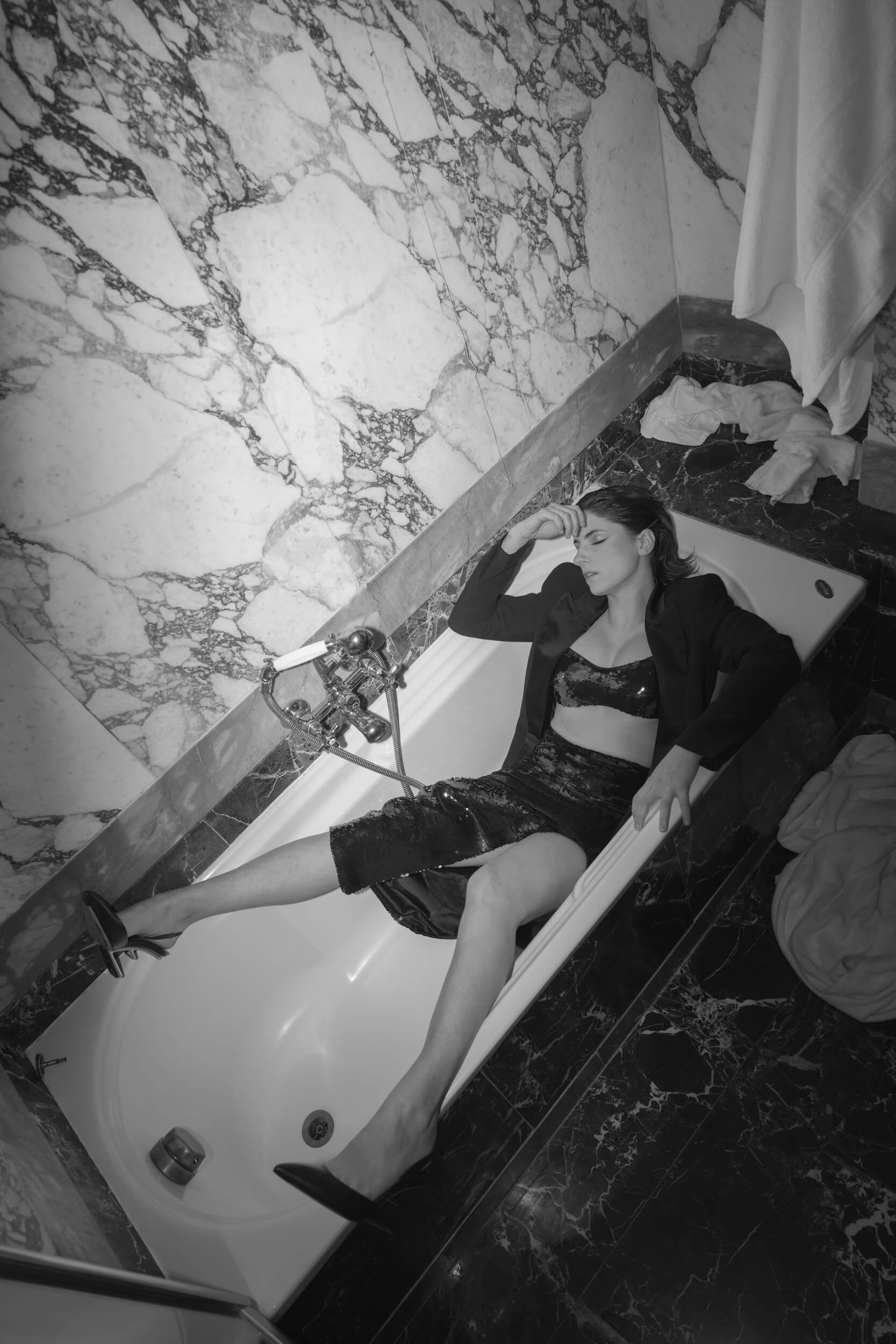
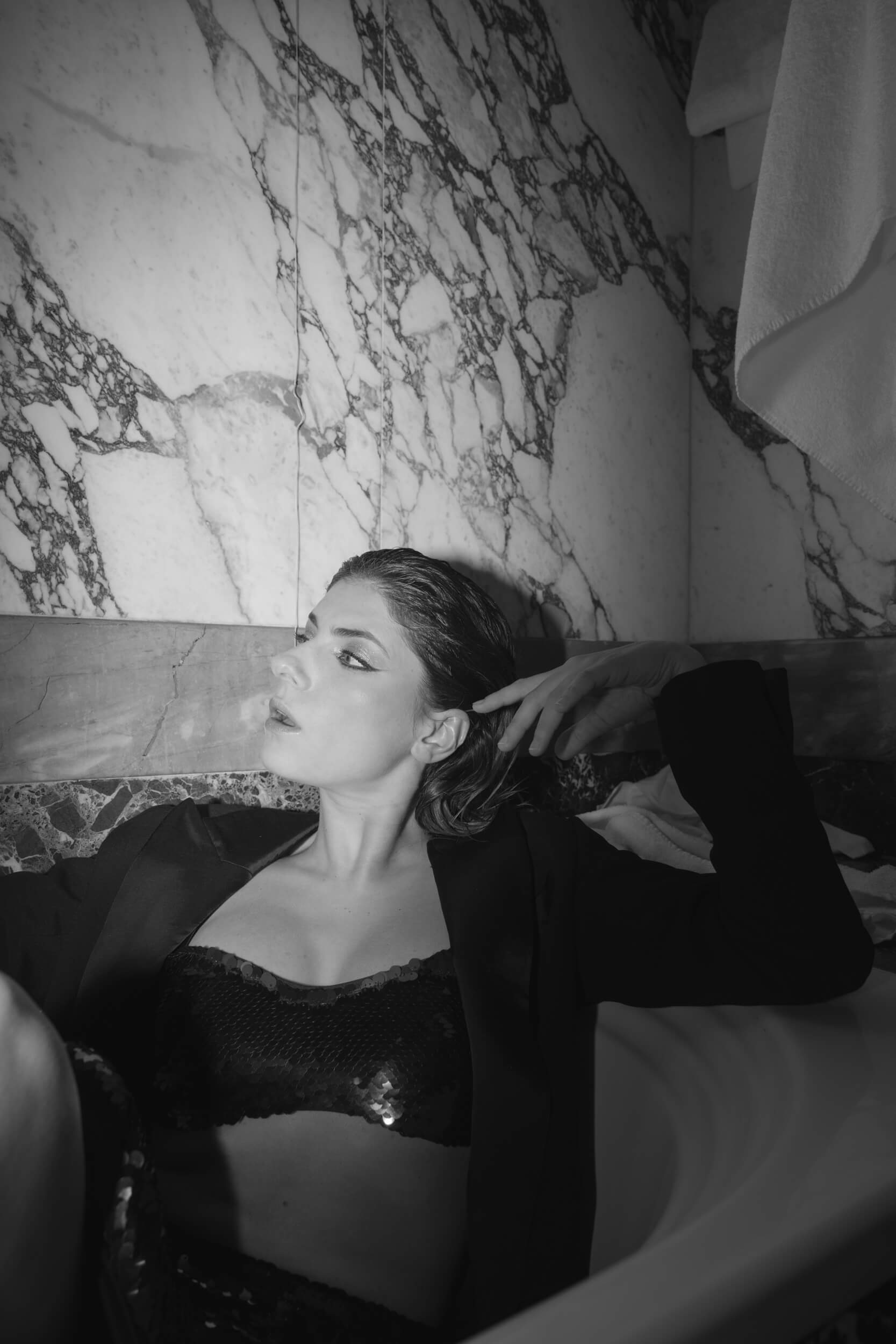
What makes you feel safe? And what, on the other hand, makes you feel confident?
I am a homebody. So, my house, the one I feel as such, the four walls where my things are, makes me feel secure. Or my parents, when I’m with them, I feel secure, and it will always be that way, and I know I’m lucky to have a mom and dad who make me feel secure.
As for what makes me feel more confident in myself, I’m still working on that [laughs]. Certainly, therapy is helping me feel more confident. With the work we are doing, very slowly, confidence becomes something induced almost unconsciously. At the moment when I feel attacked and weakened from the outside, by anyone or anything that leverages my weaknesses, thanks to therapy, now I can understand that it’s a delicate moment when I am “attacked” and react by gaining confidence in myself. Therapy, therefore, gives you the tools to understand when you are experiencing a moment when someone or something is attacking your vulnerabilities, weaknesses, and fears and gaining awareness.
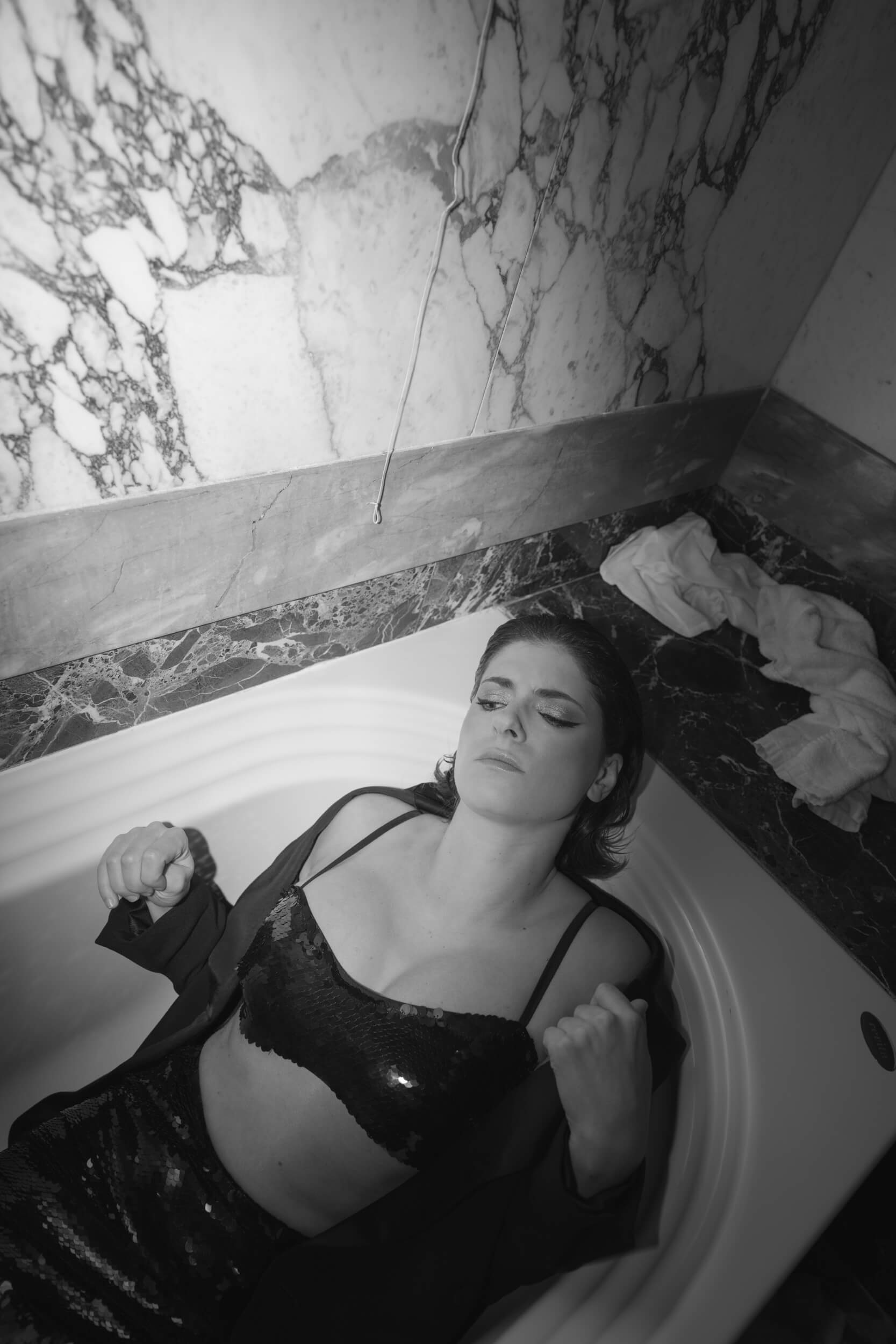
“Therapy, therefore, gives you the tools to understand…”
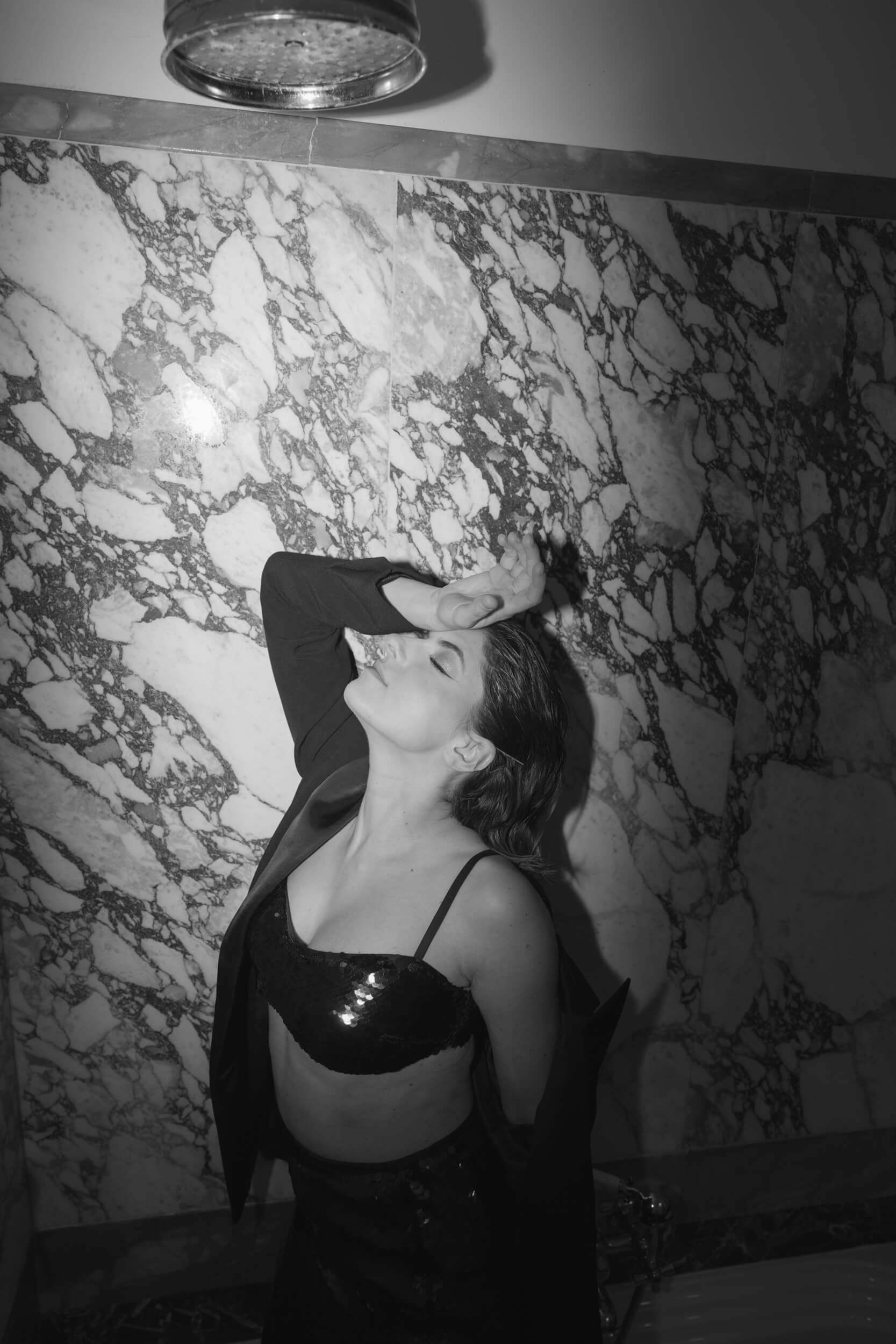
Therapy doesn’t directly give you the solution but helps you find it yourself.
Exactly, it strengthens you by providing you with the tools to do so, and it makes you confident in yourself almost unconsciously, making you able to become confident automatically.
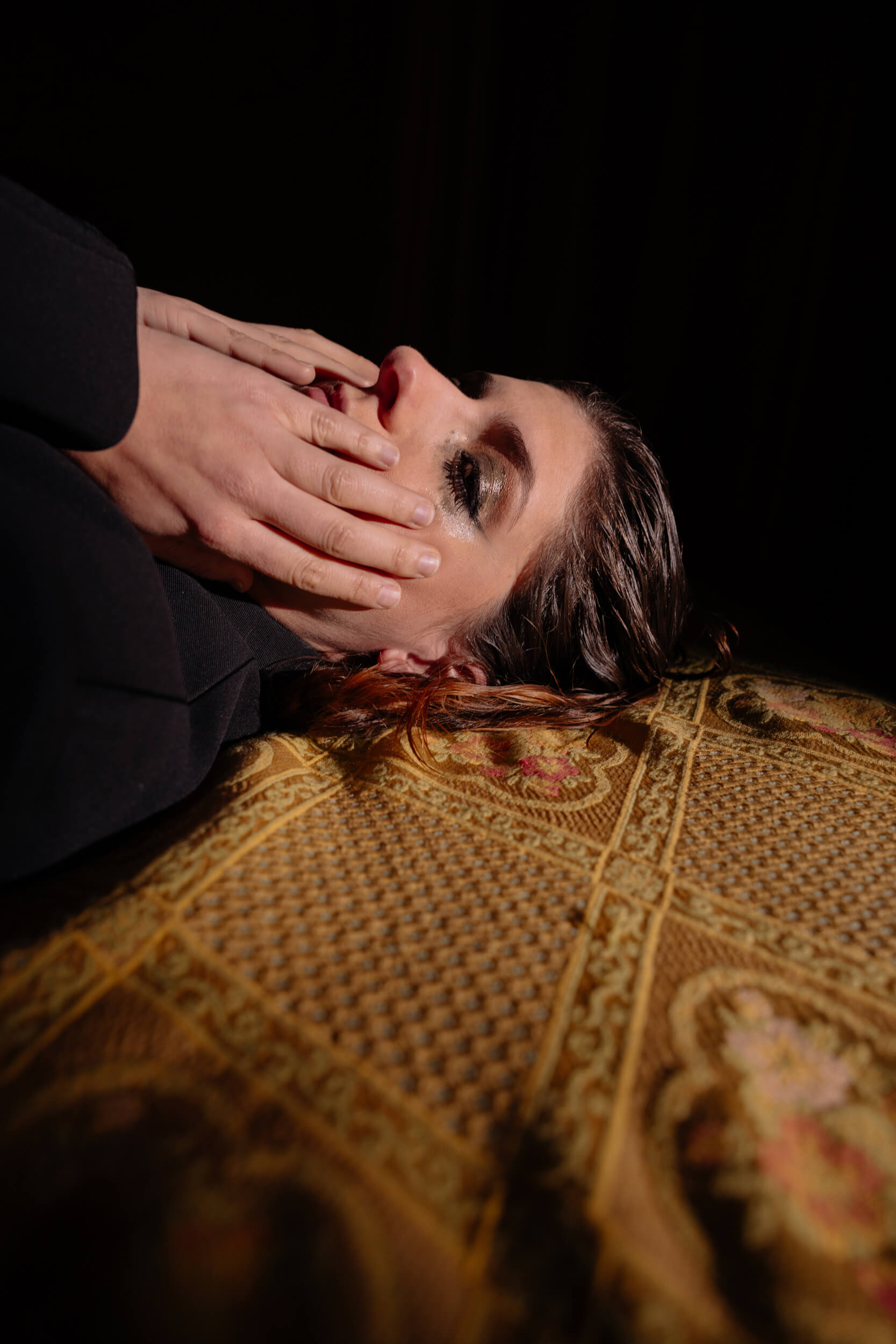
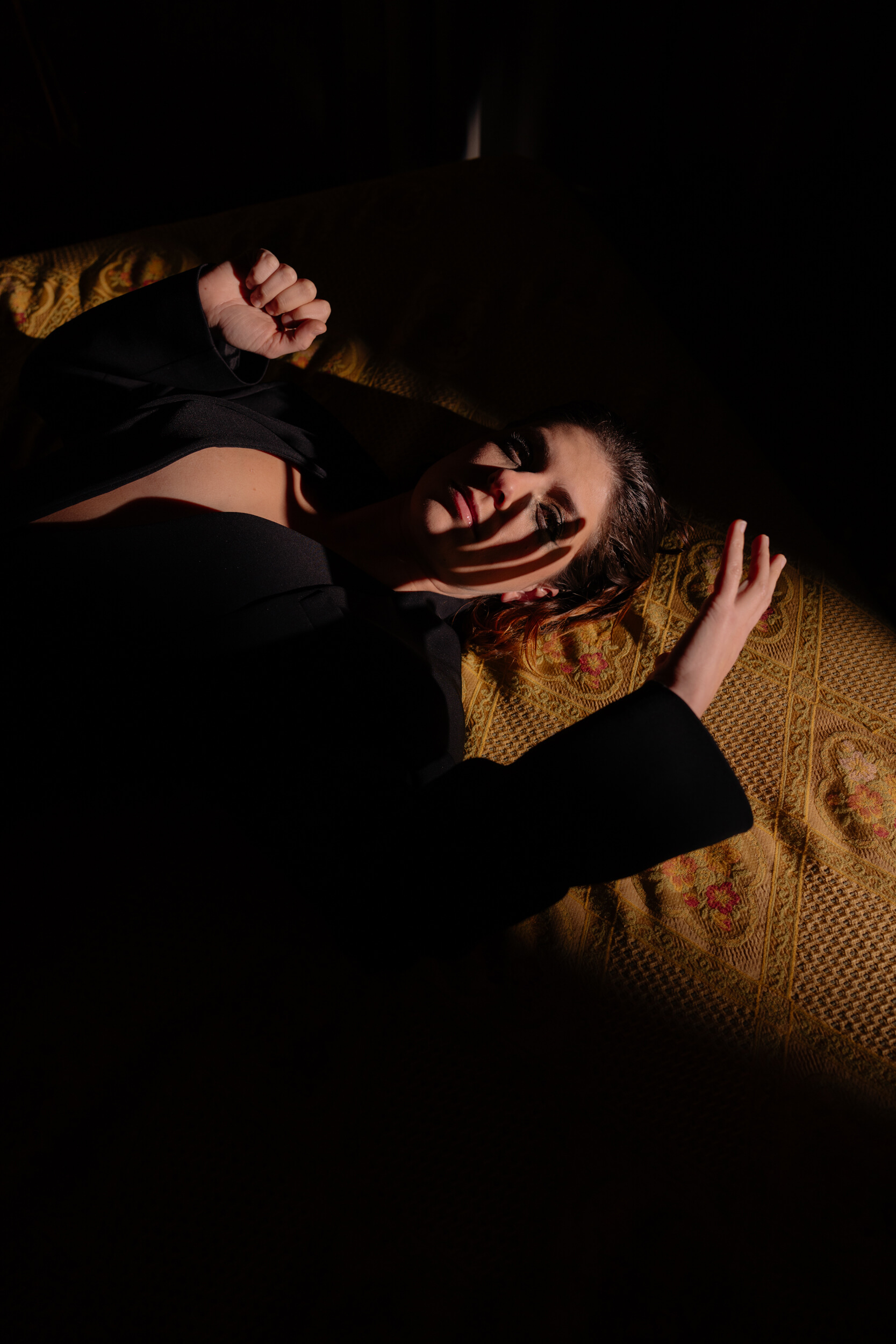
An epic fail on set?
[laughs] On the Lux sets, so “Don Matteo”, “Blanca,” I always go with the same people, so we are a family, we have known each other for six years, so I have learned to prevent epic fails. That being said, I’ll tell you that I have constipation; there was a period when I wasn’t feeling well for this reason, and on the set, usually, you don’t even have half a minute for a peaceful pee, you have to learn to understand when is the most opportune time to go to the bathroom without wasting anyone’s time. In that period, however, I had to go to the bathroom when I felt like it because otherwise, it was a missed opportunity, and I ended up in the hospital. One day, in fact, I said, “Guys, I’m probably making a fool of myself, but to avoid making it even worse, I openly admit it and tell you that when I need to poop, I have to go, so you have to wait for me because it’s a very delicate moment.” So, I practically prevented this epic fail by declaring it! [laughs].
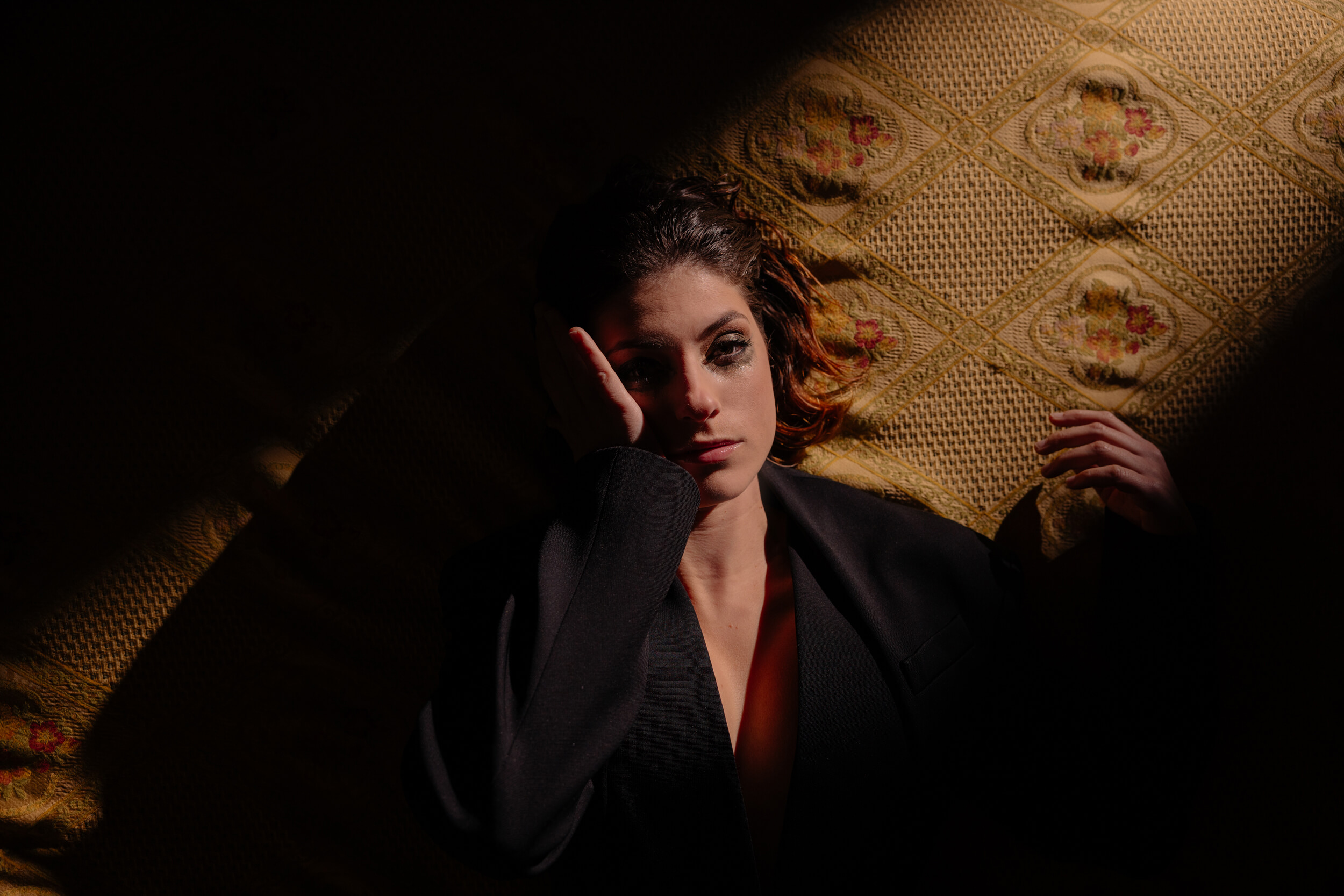
Your must-have on set?
A book. I always have to have a book with me. By the way, on the set, I am always the one with a huge backpack as if a zombie apocalypse were about to happen. I have to have my toothbrush, intimate wipes, iPad, glasses, hot and cold herbal teas with me. If you come to my dressing room, it looks like a hotel room! I always invite everyone to grab some snacks during breaks [laughs]. But the most important thing is always to have a book or two on hand. In fact, I always carry large bags for this reason.
The book in your bag now?
“Bramard’s Case” by Davide Longo. A beautiful mystery set in northern Italy.
Your biggest act of rebellion?
[laughs] I’m learning to say no. In life, I have always had difficulty saying no, I have always been afraid to contradict people, sometimes even just in ideas. So, definitely the art of saying no.
What is, instead, your greatest fear?
Until recently, before going to therapy, I was afraid that one day I would wake up and, due to the fatigue of certain mechanisms of our profession or the general effort we make, I would decide not to be an actress anymore. This scared me also because I regretted it, and maybe it would have been just the result of a stressful period. Now I know that if it were to happen, I know it would be a natural process, not a decision made out of fear, but simply because I need to stop here.
Then, I am always afraid of the sea and the unknown, of what I cannot see. Even though I am Apulian, it means nothing; I come from the countryside [laughs].
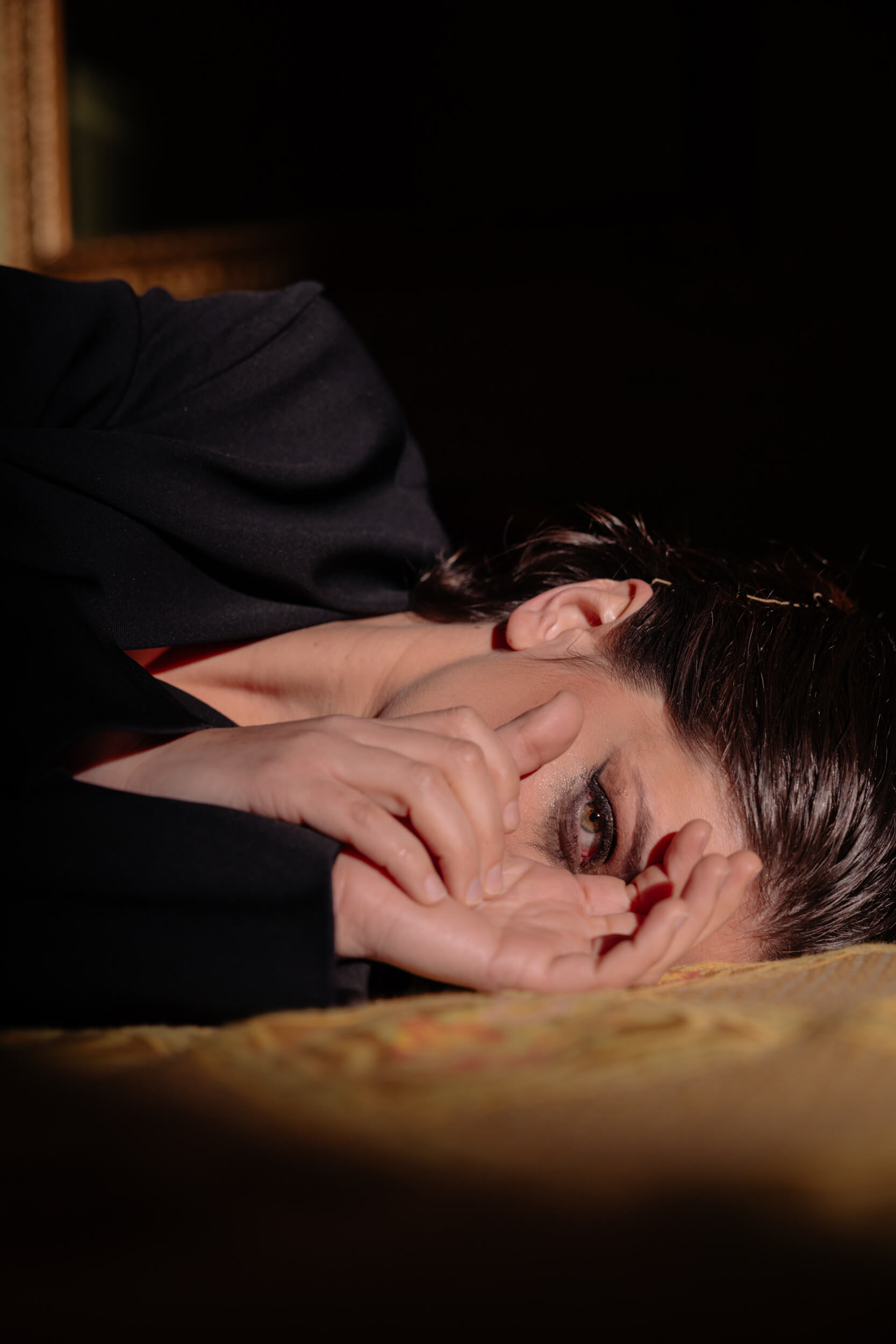
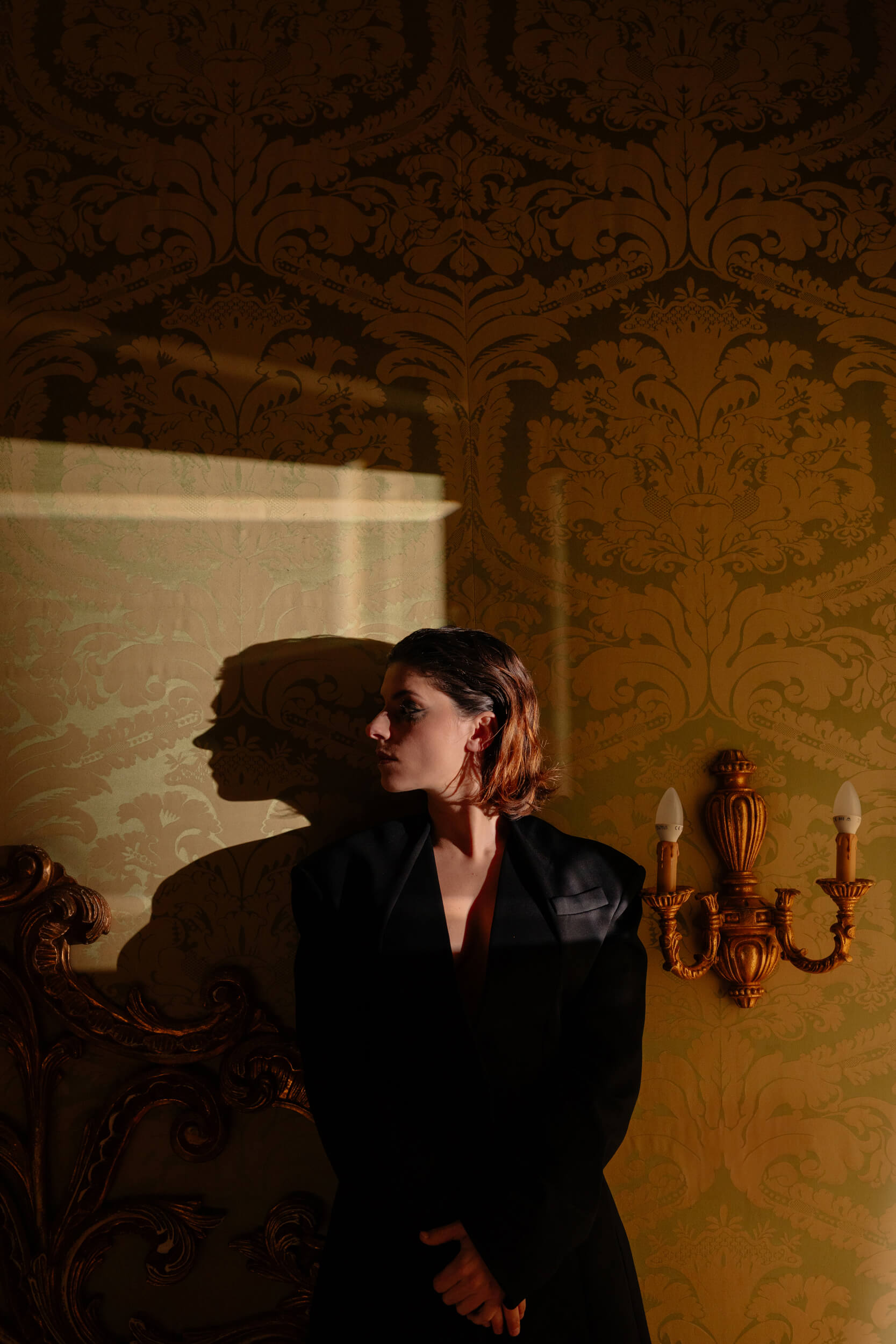
What is the bravest thing you have ever done?
The first year of “Blanca,” we shot this magnificent episode where we had to go underwater with divers… And here we go back to my fear of water [laughs]. I was terribly anxious, also because there were some apnea scenes, which is another thing that makes me anxious: I mean, we are humans, we don’t have gills, but we have lungs, why do we have to go underwater?
Fortunately, the director, Giacomo Martelli, has a diving license: he reassured me a lot and went down with me, along with a carabiniere who, as Frankenstein Junior says, was “as big as a two-door wardrobe.” In short, the three of us jump in together, and my mask, due to pressure, starts vibrating violently, and I feel a lot of bubbles in front of my face, not to mention that it was April and it was 13 degrees, so the water was very cold. The carabiniere takes me by an ankle and slowly starts taking me down because, in fact, the first thing you want to do when you go down and get scared is to go back up, and then you don’t want to go down anymore if you do. Once down, however, the mask stabilizes, and I start breathing underwater and relax. At that point, it becomes one of the most beautiful experiences of my life: I get lost, start swimming among the fish, until the director reaches me and reminds me that we have to shoot [laughs]. In short, it was a great act of courage that made me live a wonderful experience. This is also the beauty of our job; it makes you get involved.
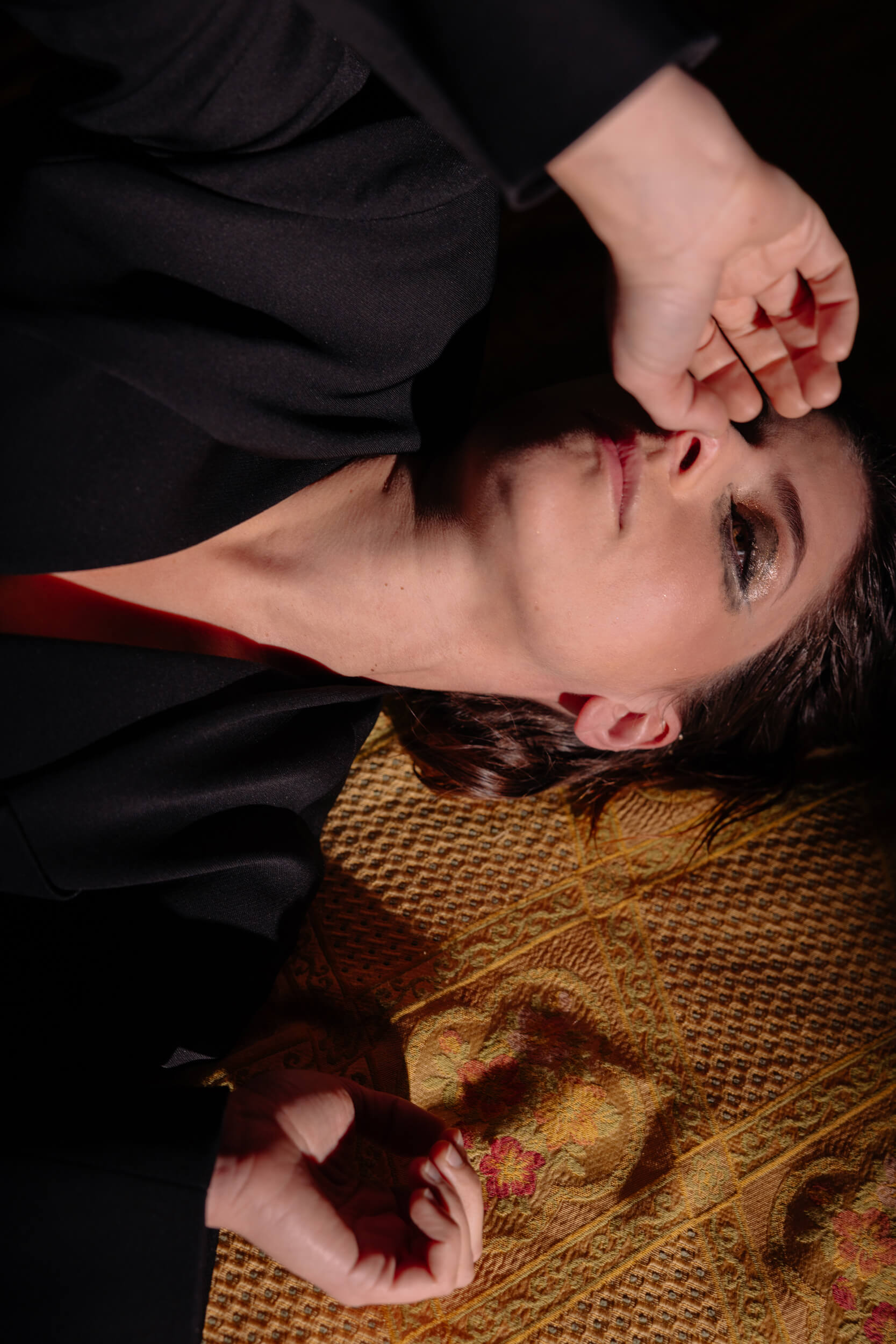
What is the last thing you learned about yourself through your work?
“Blanca” was the last substantial thing I did, and that series saved me. I learned that I want to take risks, assuming that I am quite mathematical, rational, and schematic. The preparation work I did for that series, also with the blind people who helped me, opened my eyes to unpredictability, which served me both professionally and personally.
If I hadn’t done “Blanca”, for example, I would never have accepted to participate in Sanremo. The Festival frightened me because it was not my job, so it was something I could only control to a certain extent. Fortunately, I managed to let go: I realized that if I am sure of who I am and what I am doing, I have nothing to fear. Of course, I studied my monologues thoroughly, with a month and a half of rehearsals, but for the rest, I thought, “Let’s make mistakes and see what happens.” My job was to go there calmly because if I started with doubts and fears, it would have been counterproductive. The solution for me was to try to downplay the significance of what awaited me to stay calmer. A tactic I will use more often!
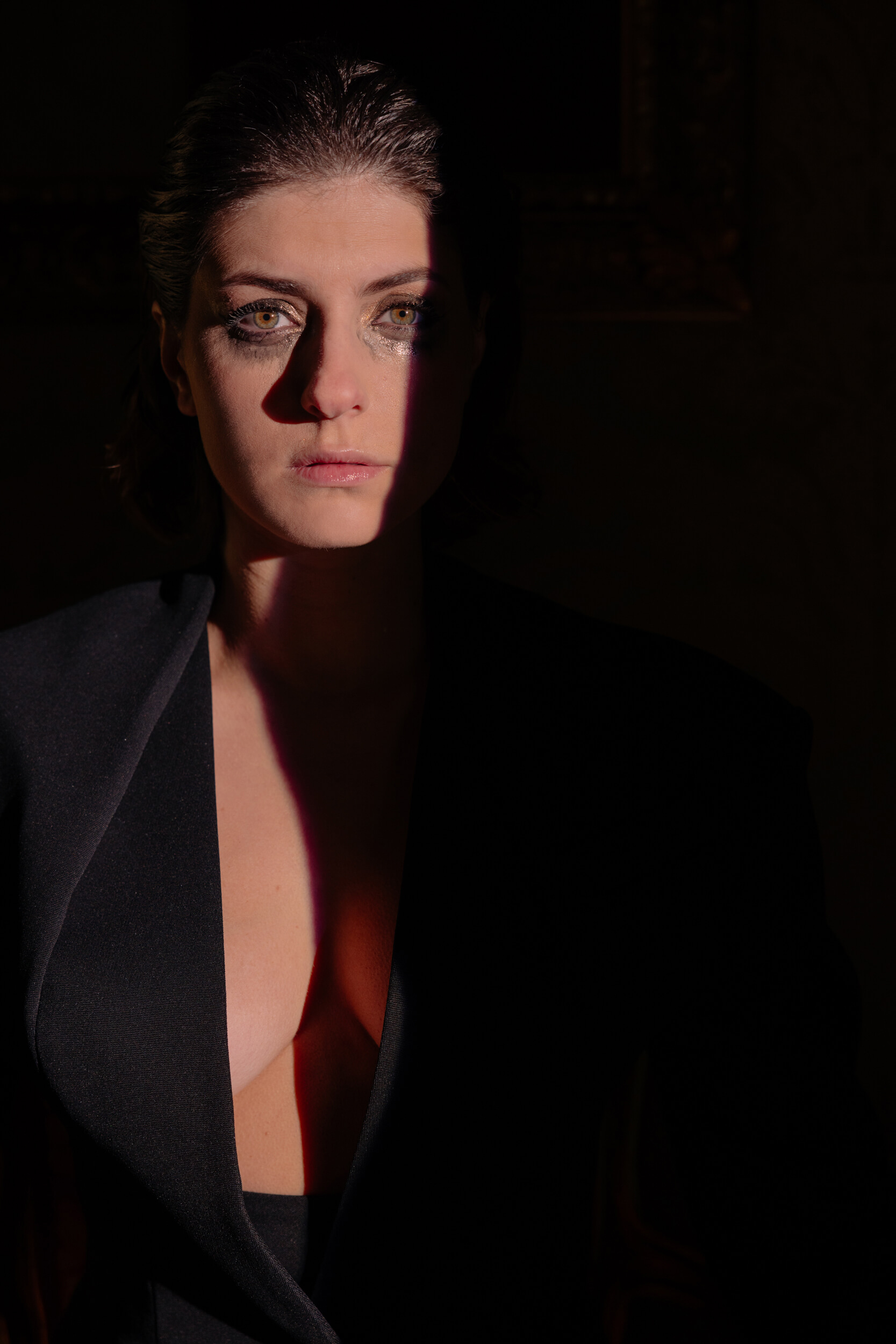
“Let’s make mistakes and see what happens”
What does feeling comfortable in your own skin mean to you?
For me, it means, physically, breathing. When I’m caught in moments where I don’t feel at ease, I breathe, count to ten, and then make the decision I need to make, whether it’s leaving a situation because I have nothing to say, or facing a situation because it’s the right thing to do. When I’m at home and feel restless because there’s a situation that doesn’t let me be at peace, I do yoga, or I go out for physical activity. Lately, for example, I go climbing with my sister, which really helps to clear my mind. Working on the body helps a lot to disconnect the mind when it gets stuck on certain things that don’t exist. Instead, the body is concrete, it’s there, alive, and when you feel things physically, like when you do sports, you stop thinking. When I do something physical, I feel comfortable because I step outside of myself.
The last thing or person that made you smile?
I would say my sister Francesca. Also, Valentino Picone, but it’s easy with him.
Your happy place?
I have a very specific place in mind. But I’m going to keep it a secret.
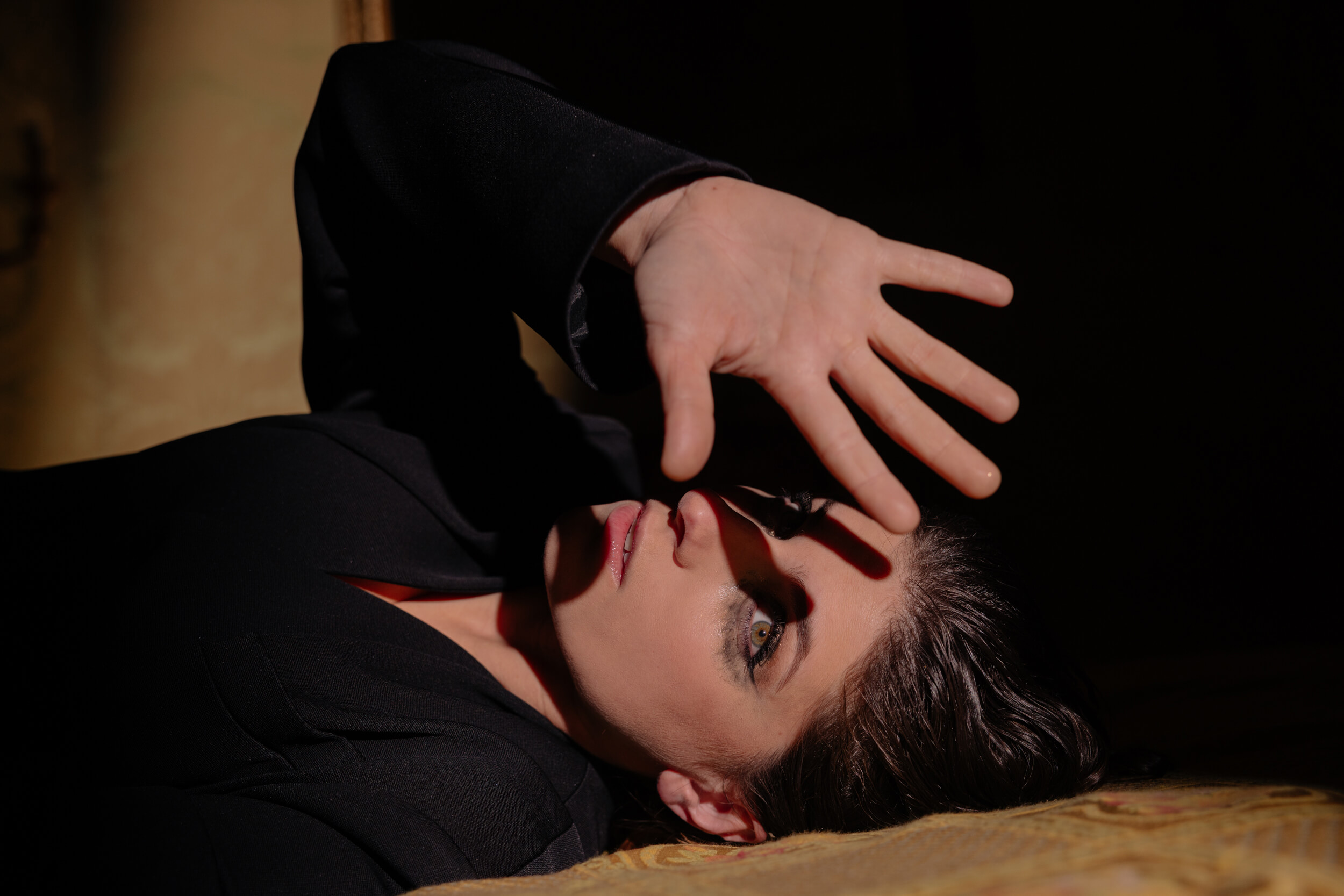
Photos & Video by Johnny Carrano.
Makeup and Hair by Elisabetta Distante.
Styling by Francesca Ottaviani.
Location: Hotel Turner – Des Epoques Hotel.
Thanks to Lapalumbo Comunicazione.
LOOK 1
Dress and shoes: Fendi
LOOK 2
Top, skirt and blazer: Federica Tosi
LOOK 3
Blazer and skirt: Alessandro Vigilante

